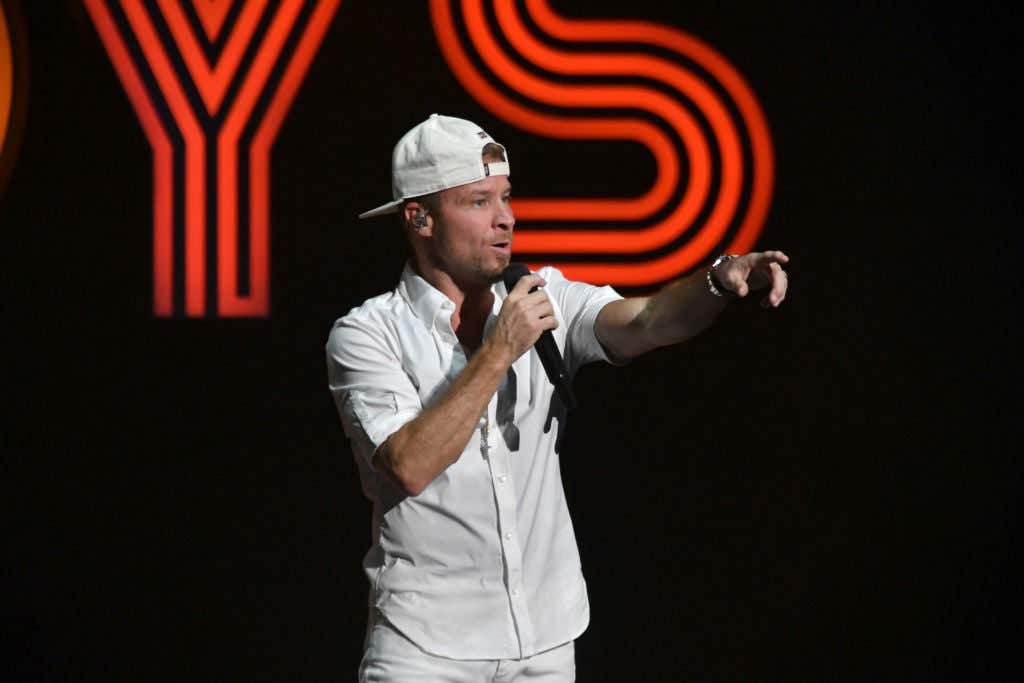50 Women Who Broke Barriers in the Music Industry
The music industry is dominated by powerful women, whether that be the artists with record-breaking albums like Taylor Swift or glass-ceiling-shattering boardroom executives. Of course, the music industry was not…

The music industry is dominated by powerful women, whether that be the artists with record-breaking albums like Taylor Swift or glass-ceiling-shattering boardroom executives. Of course, the music industry was not always so welcoming to women recording artists. In the early 20th century, many women were barred from performing in certain venues. Others faced discrimination on the road, radio, and from record label executives and fellow male artists.
American music would not be as great as it is without the pioneering work of women like Ella Fitzgerald and Aretha Franklin. Nina Simone and Marian Anderson used their voices not only to tantalize listeners but to push for equality during times when segregation was rampant throughout the country. These empowering voices from the past have resonated across generations to open the doors for today’s top acts, many of whom, in turn, are pushing new boundaries for future generations of women in the music industry.
To celebrate these pioneers, Stacker used data from primary news sources to compile a list of 50 women who broke barriers in the music industry. Many of these names are well-known; but are you familiar with one of the first Indian singers who won over crowds in North America? What about the rock star who opened up doors for hip-hop icons? Or the pop star who became an owner of a professional football team?
All that information and more is in this comprehensive review of some of entertainment’s most powerful figures. This list is not just exclusive for singers, though; we will clue you in on some of the emerging executives who are making waves in music and beyond.
Ella Fitzgerald
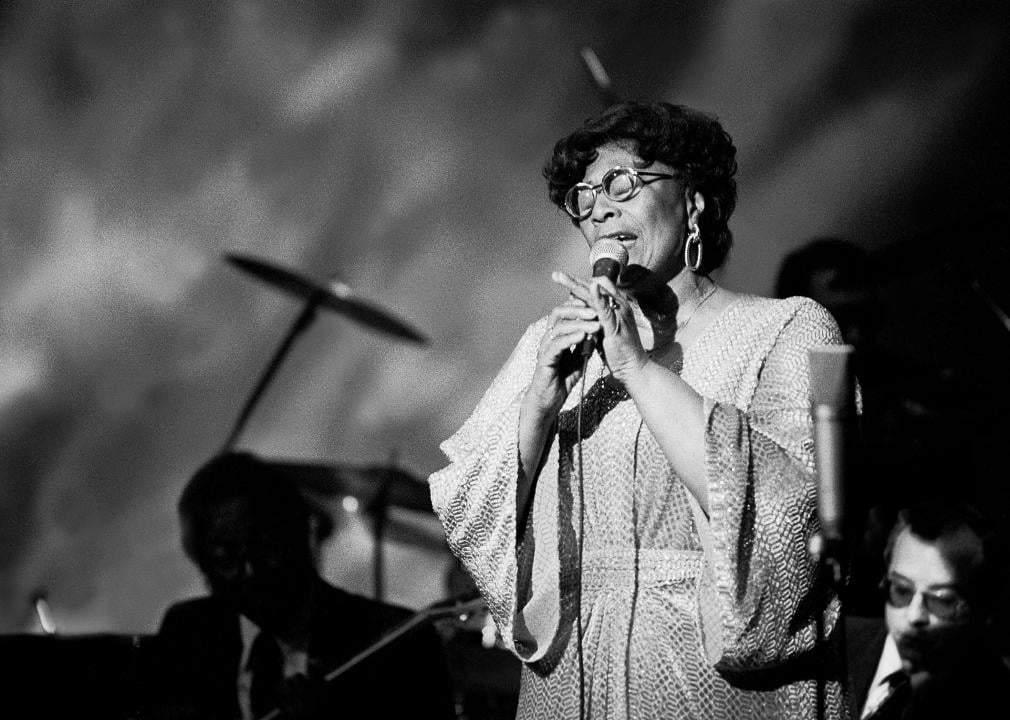
Paul Natkin // Getty Images
Ella Fitzgerald was known as “The First Lady of Song” for good reason. She won 13 Grammys, recorded more than 200 albums, and was a regular on “The Ed Sullivan Show” and “The Tonight Show.” She also fought relentlessly against discrimination as a Black female artist during the Jim Crow era. Fitzgerald was the first Black woman to win a Grammy award.
Billie Holiday
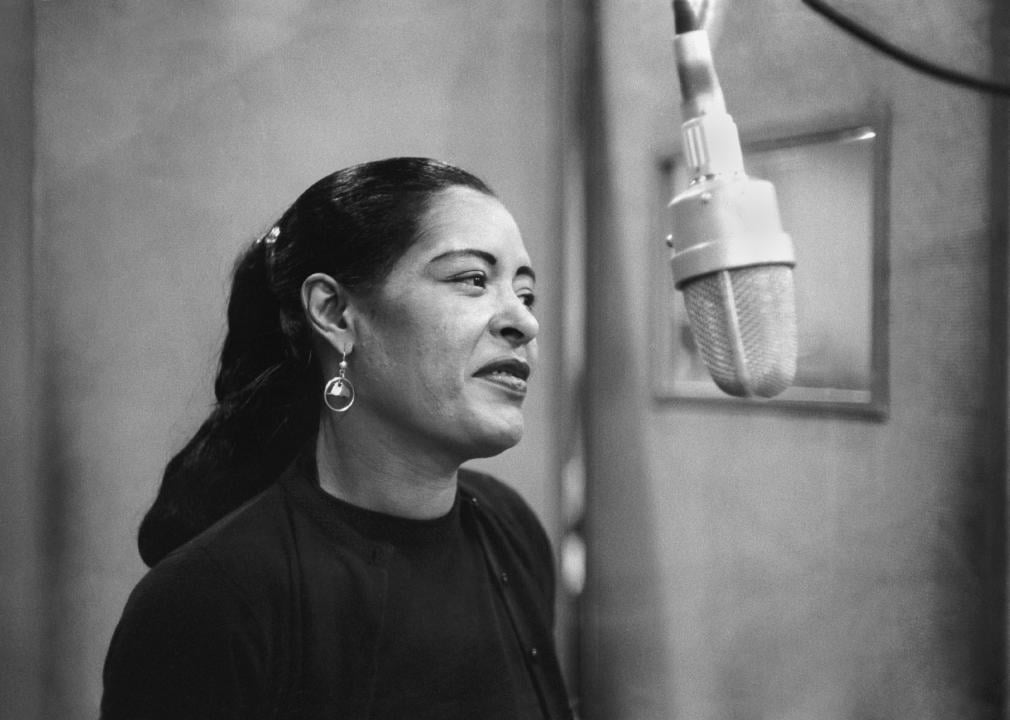
Donaldson Collection // Getty Images
Billie Holiday became one of the first Black women to work with a white orchestra when she toured with Artie Shaw in the late 1930s. One of the most famous jazz vocalists in history, Holiday’s song “Strange Fruit,” an anti-lynching poem written by Abel Meeropol, eventually earned recognition by the National Endowment for the Arts.
Marian Anderson
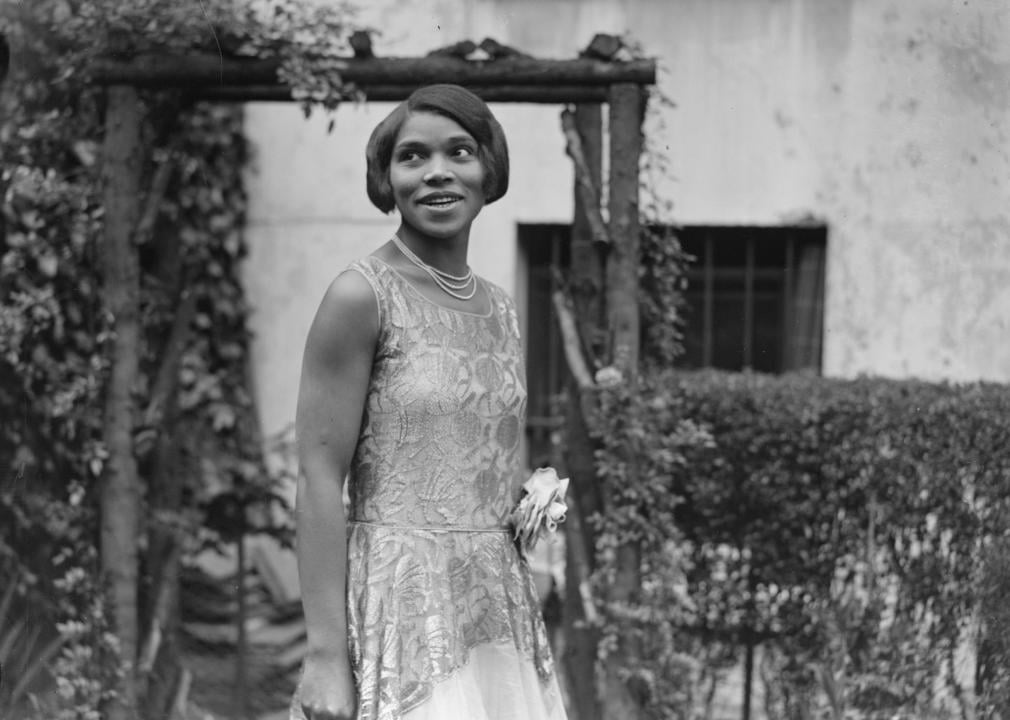
London Express // Getty Images
While she was unable to sing in some of the country’s most revered halls, Marian Anderson still wowed crowds—and even Eleanor Roosevelt—with her powerful voice. Anderson eventually became the first Black performer to sing at the Metropolitan Opera. Anderson also became a regular performer at the White House, singing patriotic songs with gusto despite her own country’s discrimination against her.
Lakshmi Shankar
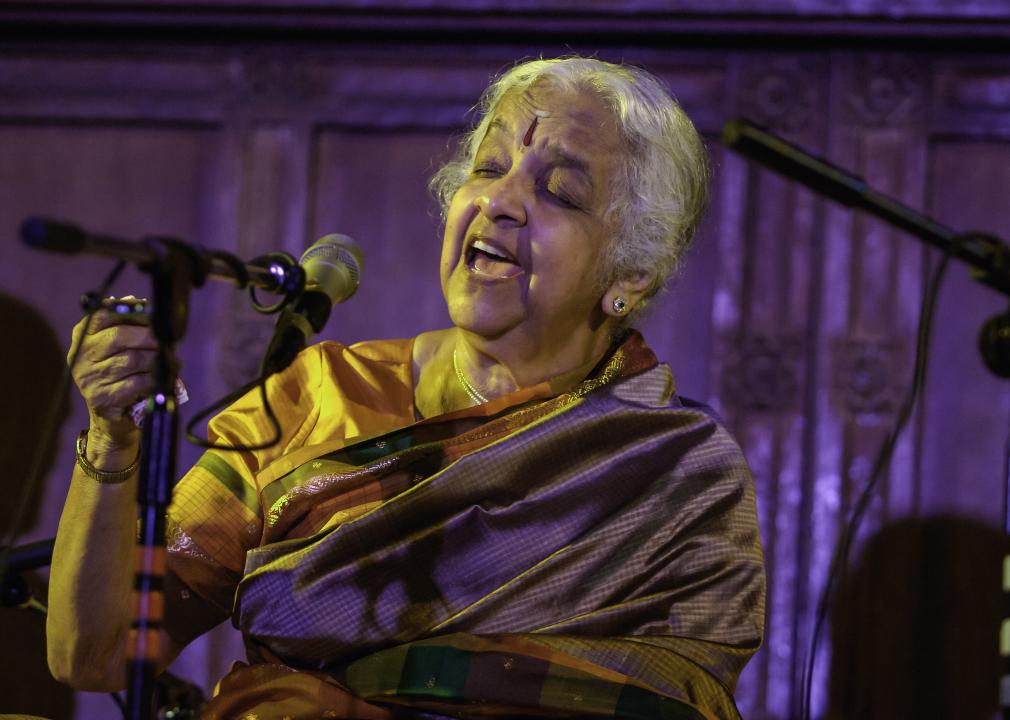
Jack Vartoogian // Getty Images
Lakshmi Shankar was a popular Indian musician who was celebrated by fans in the West. She paved the way for artists like Krishna Bhatt and was a standout on the soundtrack for the film “Gandhi.” The sister-in-law of sitar player Ravi Shankar, she also became friends with and collaborated with George Harrison.
Nina Simone
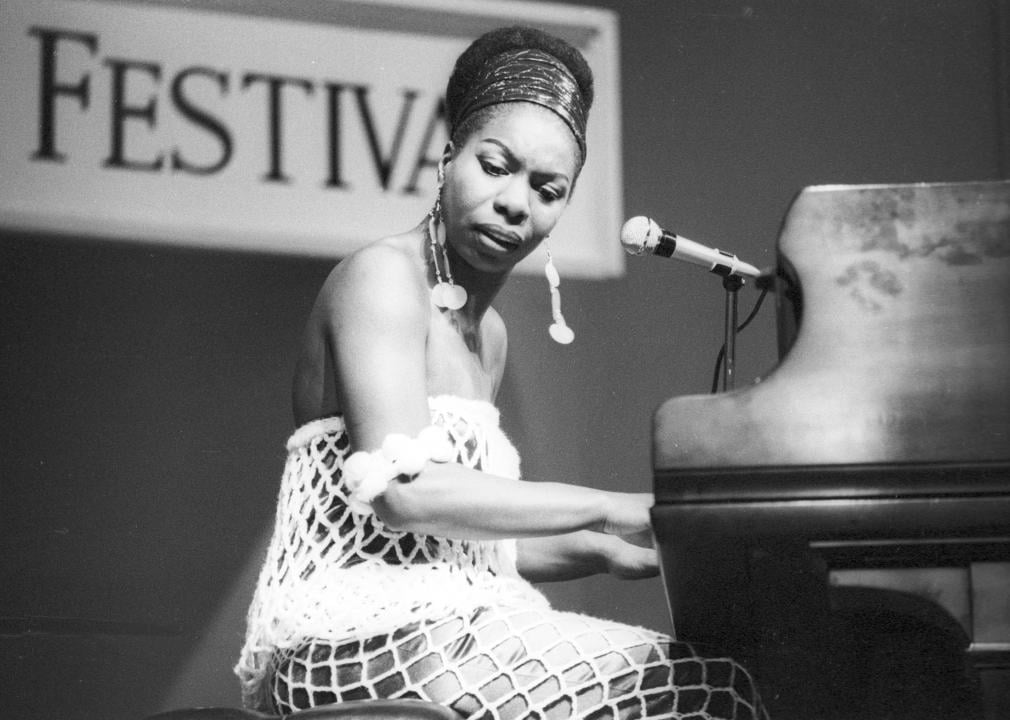
Tom Copi // Getty Images
Nina Simone was known as the “High Priestess of Soul” for her melodic, poignant, and emotional music. Dedicated to her beliefs of justice and empowerment, Simone left the United States in the 1970s and sharply criticized the country from afar because of its racial injustices.
Aretha Franklin
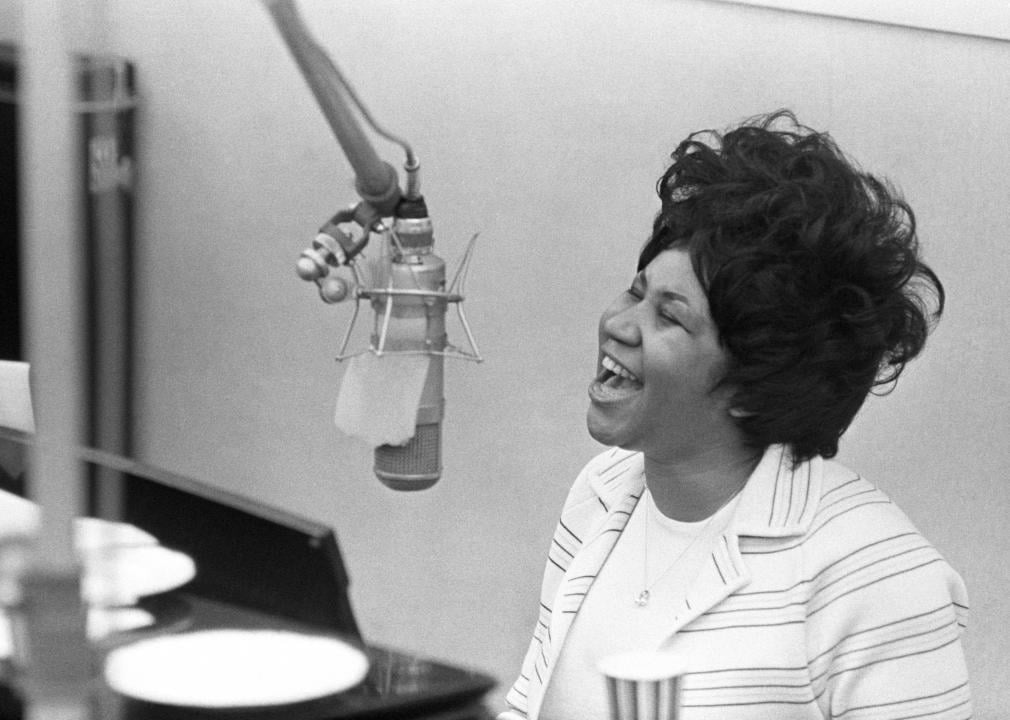
Michael Ochs Archives // Getty Images
Aretha Franklin won a record eight consecutive Grammys for best R&B vocal performance from 1967 to 1974. The “Queen of Soul” was the first woman inducted into the Rock & Roll Hall of Fame, and sang at historic events in U.S. history like the memorial for Martin Luther King Jr. and the 2009 inauguration of President Barack Obama. Franklin also topped Rolling Stone’s list of 100 greatest singers of all time.
Joan Baez
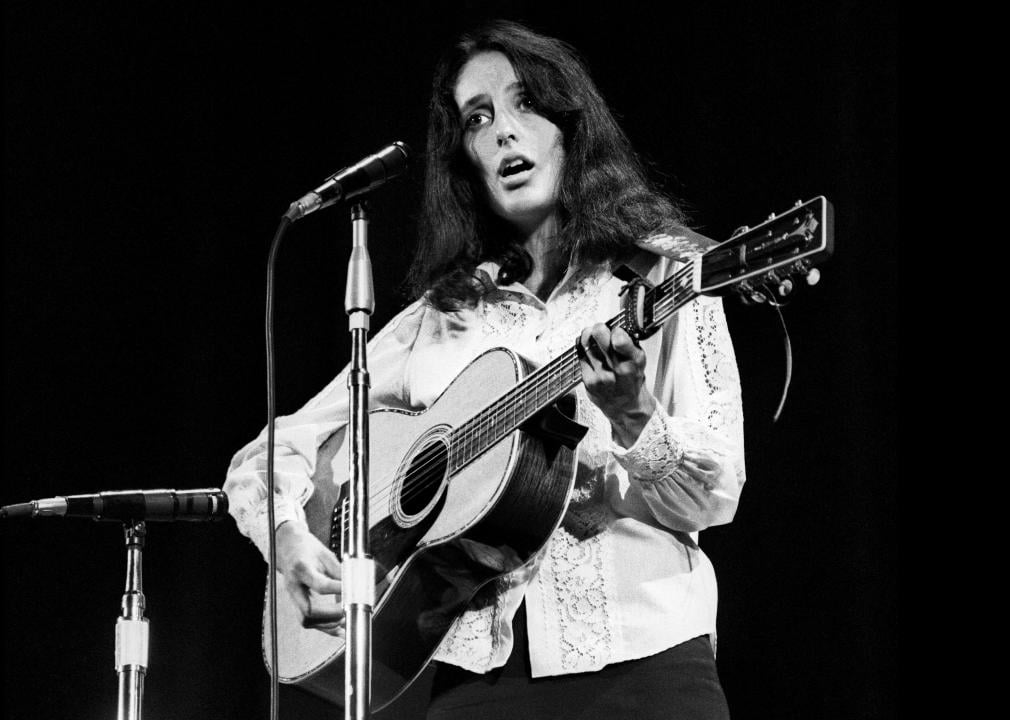
Ron Pownall // Getty Images
Joan Baez closed the first day of Woodstock in 1969 and almost instantly achieved a new level of fame with her standout performance. A decade earlier, at only 18, she had performed at the Newport Folk Festival. Throughout her career, Baez has been a champion for civil rights and humanitarian causes, and in 2015, Amnesty International awarded her its top honor—the Ambassador of Conscience Award—for her continuing leadership and efforts in this arena.
Diana Ross
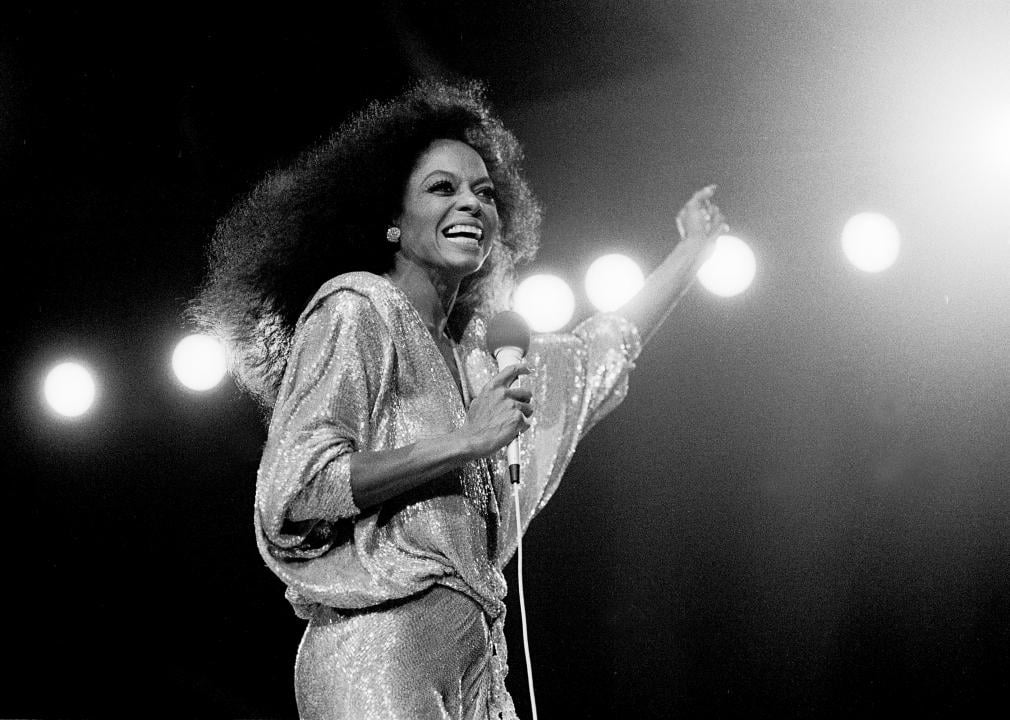
Paul Natkin // Getty Images
As the lead singer of The Supremes, Diana Ross shattered music records from 1965 to 1969. The Supremes are revered as one of the top girl groups of all time, with a dozen #1 hits. By 1970, Ross left the group to pursue a solo career. Her first two singles hit #1, and she went on to star in a number of films, including “Lady Sings the Blues,” which garnered her an Oscar nomination; “Mahogany”; and “The Wiz.” Ross was recognized by the Guinness Book of World Records as the most successful female artist of all time, and the book produced a special commemorative Diana Ross edition in 1993.
Tina Turner
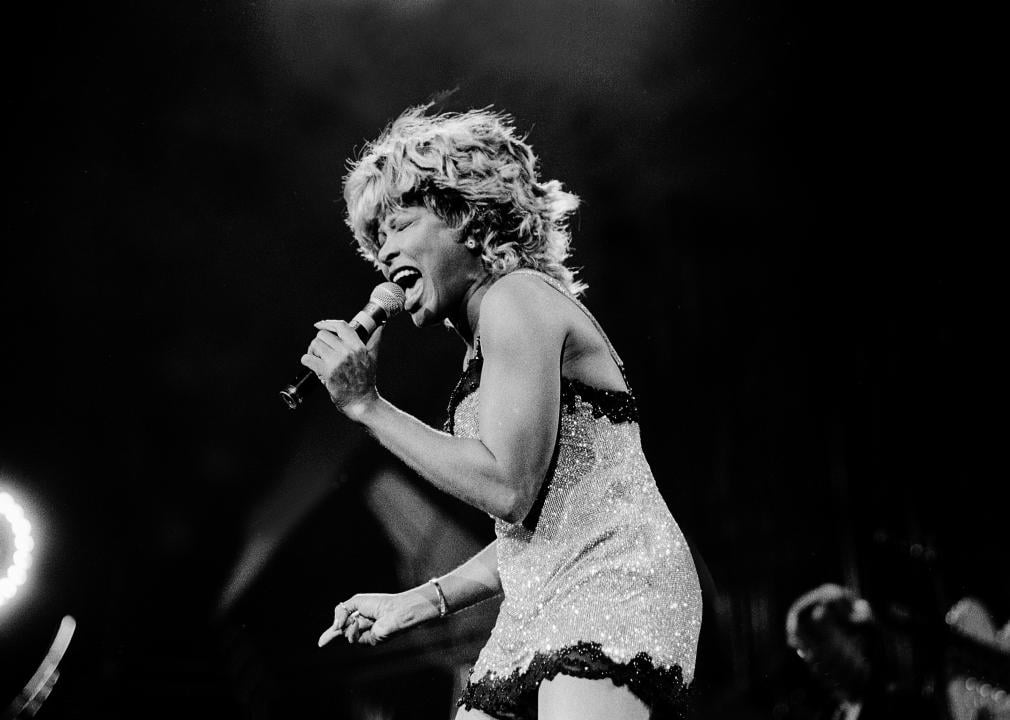
Paul Natkin // Getty Images
Tina Turner was the second artist on the cover of Rolling Stone, and the first female and Black artist to be on the cover of the famed magazine. She started her career in the late 1950s, and for nearly 20 years, she performed with her ex-husband Ike. After leaving him and pursuing a career on her own, it was the 1984 release of “Private Dancer” that put her back on track. Turner has been christened the "Queen of Rock" and was a major inspiration to artists like Beyoncé.
Carole King
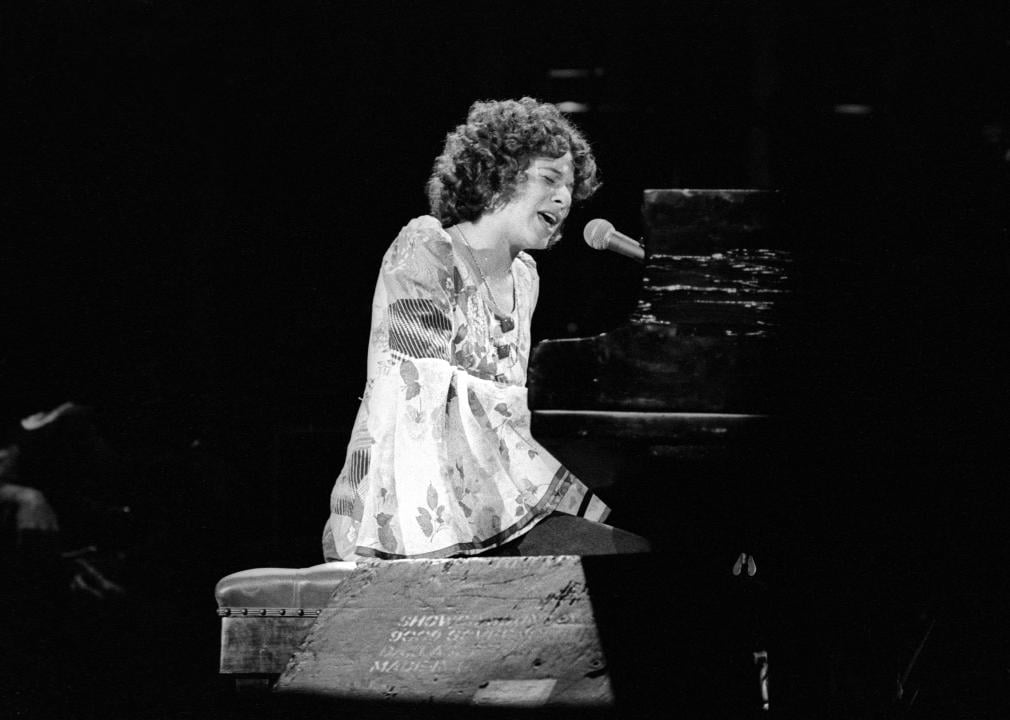
Ian Dickson // Getty Images
In the 1960s, Carole King wrote many hits for some of music’s top acts, setting a precedent for female songwriters. Five decades later, she won the Congress Gershwin Prize for Popular Song—the first woman to win the award. King’s standout career was later recapped in a smash Broadway play, “Beautiful.”
Joni Mitchell
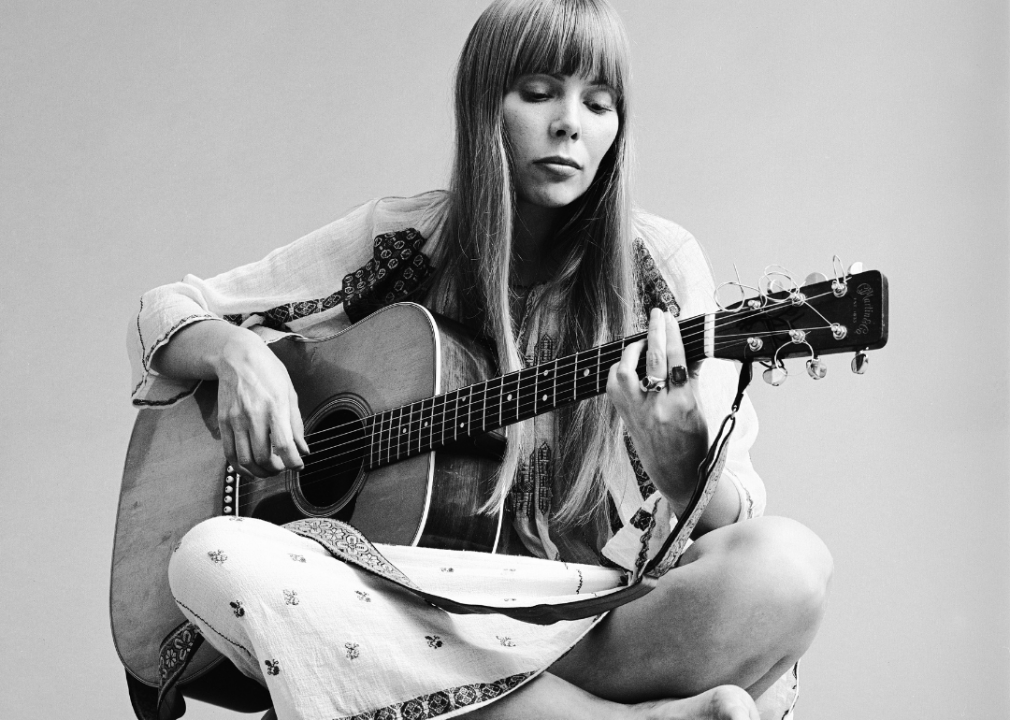
Jack Robinson // Getty Images
In 2017, NPR set out to name the top 150 albums made by women. At #1 on that list? Joni Mitchell’s 1971 classic, “Blue.” Called simple and radical, “Blue” was a rousing call for equality. Mitchell’s influence on the music world—for male and female musicians alike—runs deep.
Janis Joplin
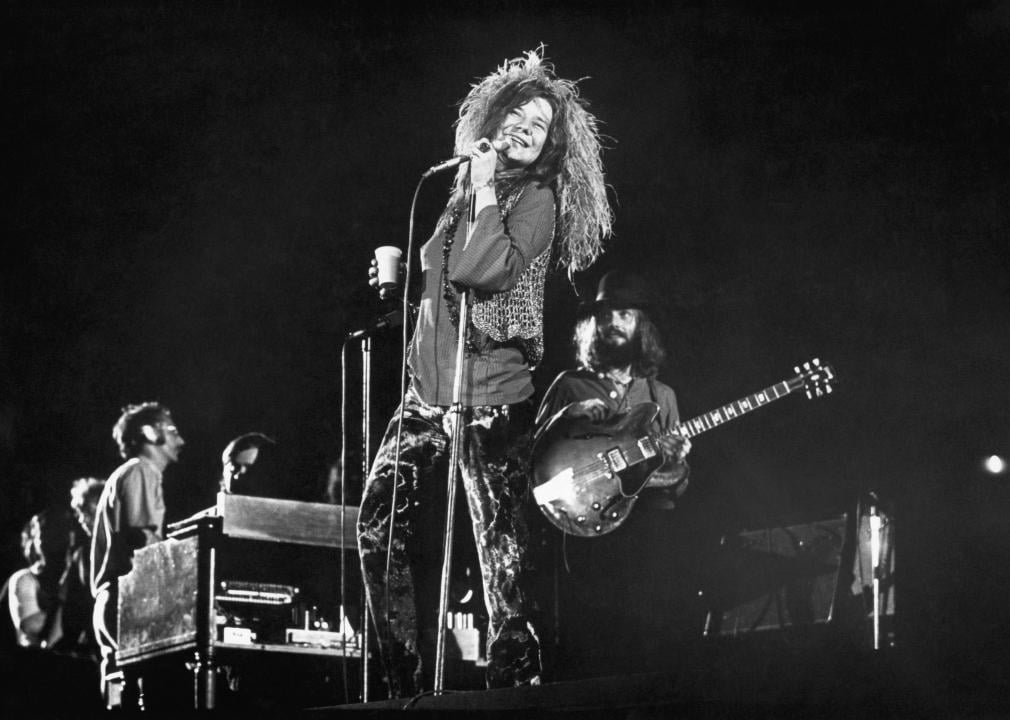
Bettmann // Getty Images
Janis Joplin only lived to be 27 but made a mark on the music world like few other artists. Florence Welch, Pink, and Stevie Nicks are just some of the notable artists who’ve cited Joplin’s electric stage presence and emotional lyrics as inspirations. At her height, Joplin was called the first queen of rock ‘n’ roll.
Patti Smith
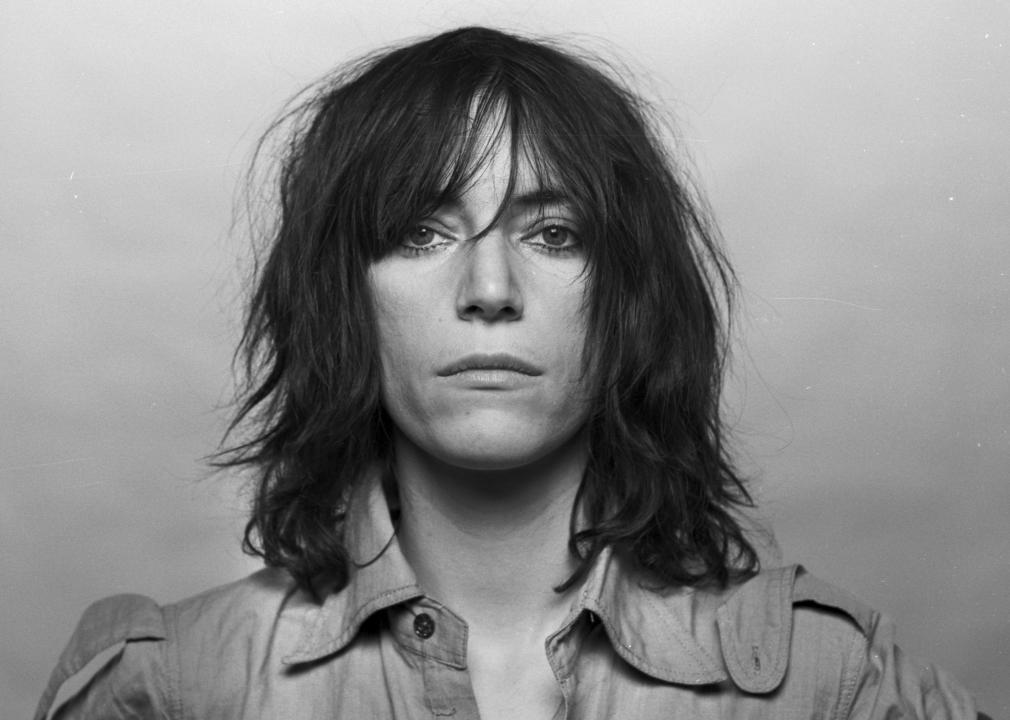
Gijsbert Hanekroot // Getty Images
Patti Smith became one of New York City punk rock’s founding figures with her debut album “Horses.” Throughout her career, Smith remained one of the foremost activist voices in music, and always seemed up for pushing against the grain. In 2017, Smith won the National Book Award for her memoir, “Just Kids.”
Cher
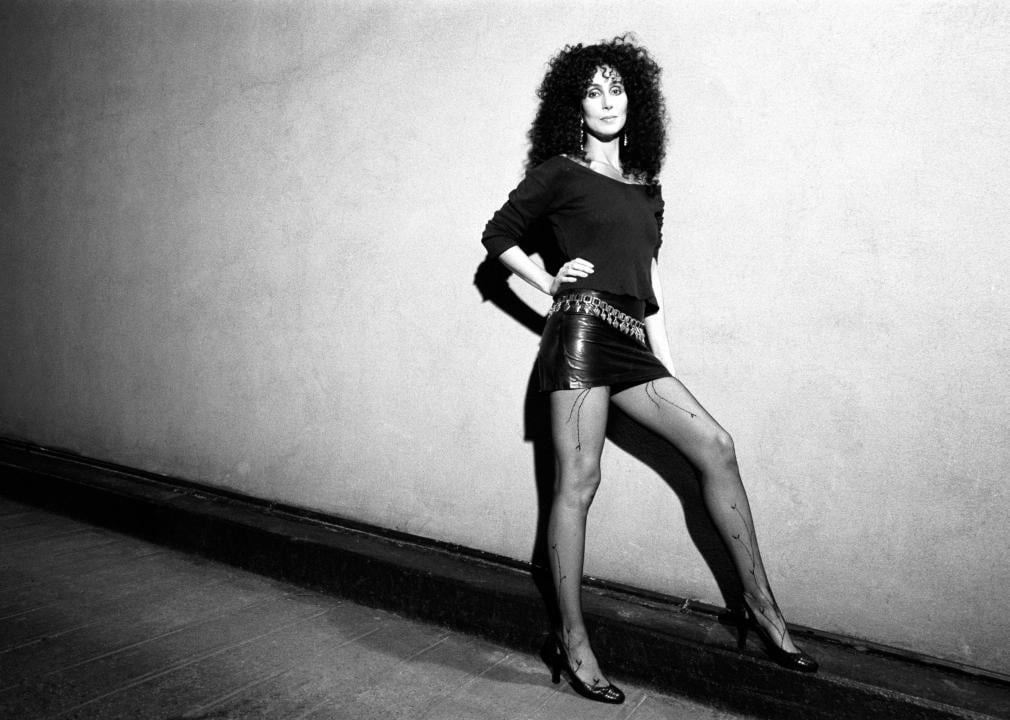
Joe McNally // Getty Images
Cher has seemingly done it all—in music, movies, and on TV—and has never been constrained to one label through an illustrious career. She’s been called the “Goddess of Pop” with her ability to churn out dance and radio-friendly hits since the 1960s. Cher endeared herself to a new generation with her ability to connect through social media.
Dolly Parton
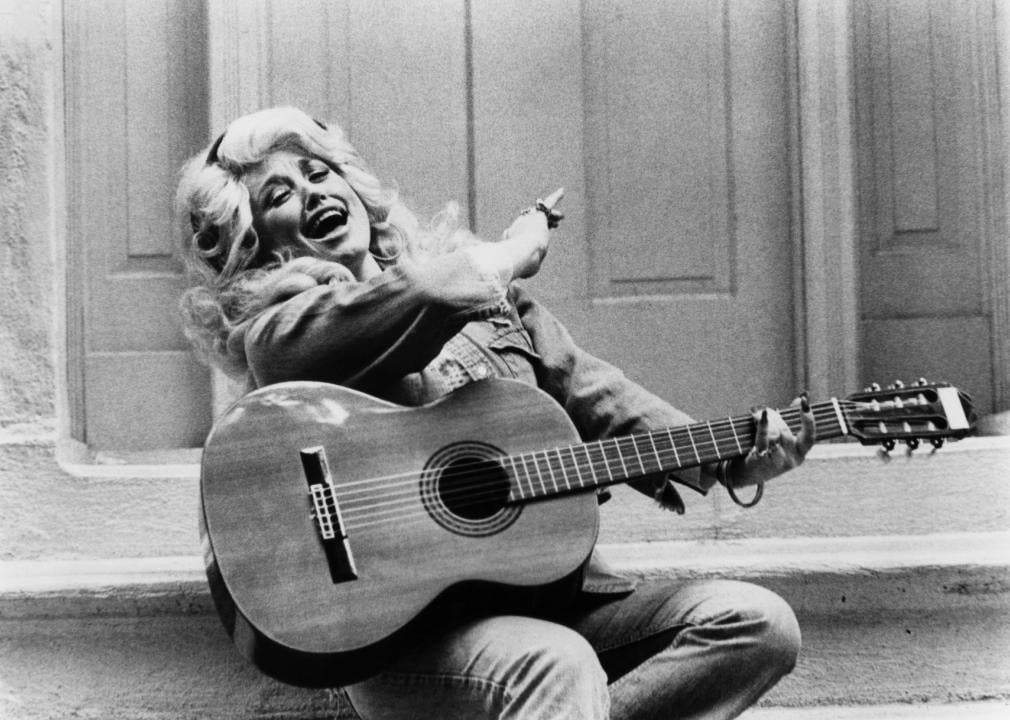
Gems // Getty Images
Dolly Parton is country music royalty, recognized as having the most hits on Billboard’s Hot Country songs chart. Throughout her career, Parton appealed to fan bases many country artists have trouble reaching; she also built one of music’s first empires, evidenced by the Dollywood theme park.
Martha Quinn and Nina Blackwood
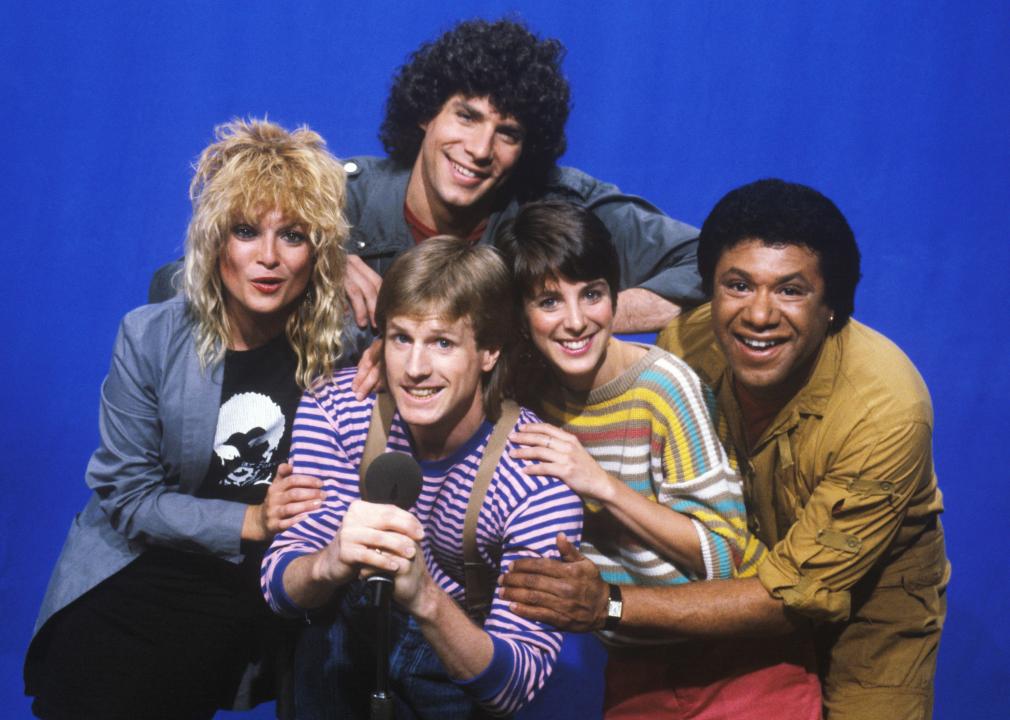
Mark Weiss // Getty Images
Martha Quinn and Nina Blackwood were two of MTV’s original VJs and helped revolutionize the industry by making music videos a new preferred choice of music consumption for much of the 1980s and 1990s. Their style and smarts helped make VJs stars in their own right, and Quinn and Blackwood helped set the standard for music TV personalities for decades to come.
Debbie Harry
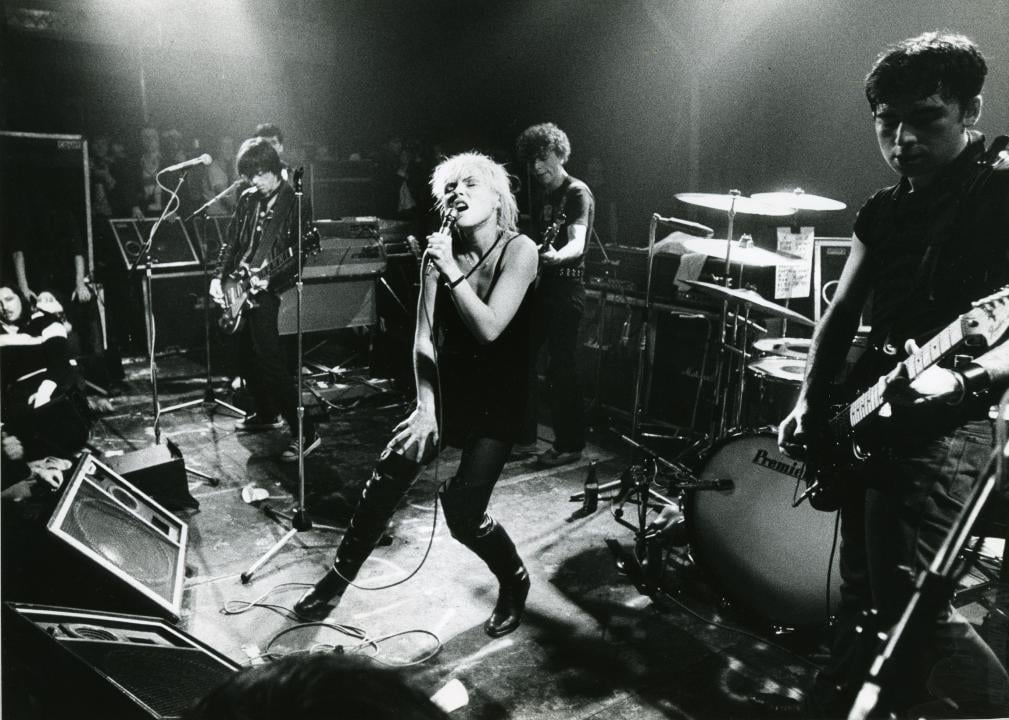
Gie Knaeps // Getty Images
Debbie Harry was not only the lead singer of Blondie, a powerful force backed by male band members, but a bit of a hip-hop pioneer. On “Saturday Night Live,” she brought on Sha-Rock to perform, who is considered one of the first female emcees. Through much of the 1980s, Harry was one of music’s style icons.
Madonna
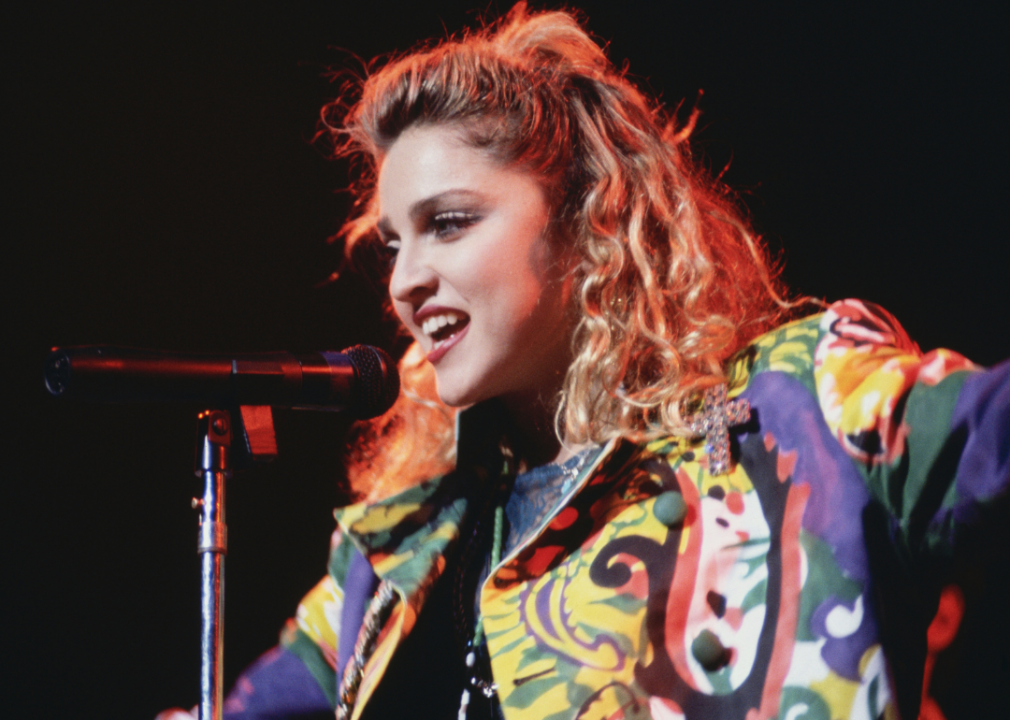
Bettmann // Getty Images
Influenced by Debbie Harry, Madonna became the definitive pop icon of the 1980s. Thanks in large part to her regular airplay on MTV, Madonna became one of the biggest acts in the world, before becoming a star on the silver screen. Madonna has openly talked about religion, sex, feminism, and age, and remains one of the most popular artists in the world.
Whitney Houston

David Corio // Getty Images
With one of the most memorable voices in music history, Whitney Houston crafted pop hits, chart-topping ballads, and rousing renditions of the national anthem. Houston was the first recipient of BET’s Lifetime Achievement Award in 2001. Even after the death in 2012, Houston remains one of the most cited influences in modern pop and R&B.
Salt-N-Pepa
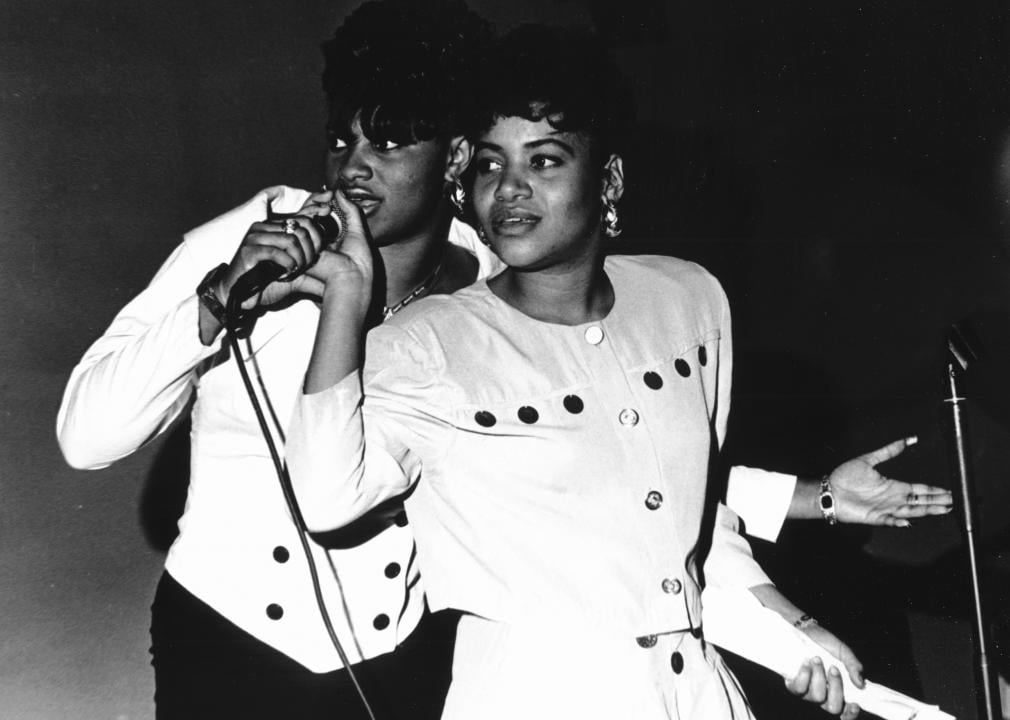
Al Pereira // Getty Images
Salt-N-Pepa were hip-hop pioneers, and the first female rap group to win a Grammy. Along with Spinderella, their DJ, Salt-N-Pepa showed women could find success in the machismo-fueled world of rap and stressed female empowerment. In the 1990s, the group was among music’s most vocal advocates for safe sex.
Janet Jackson
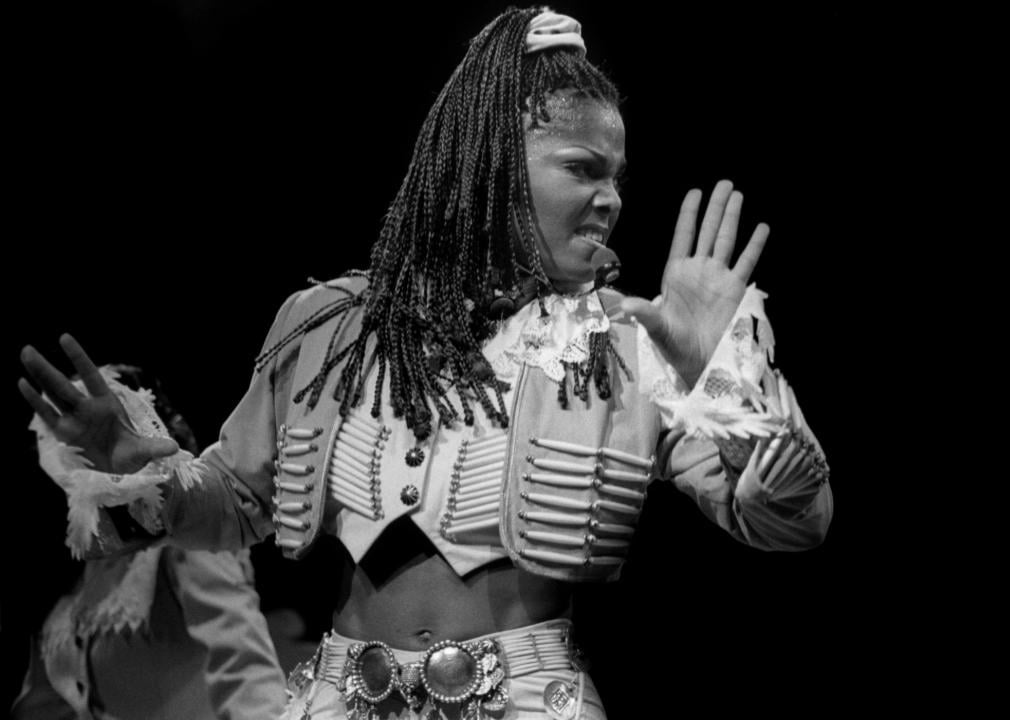
Raymond Boyd // Getty Images
Emerging from the shadow of her brothers, Janet Jackson became an icon on her own with a tireless work ethic and a style of R&B that changed the industry. In 1996, Jackson signed a record-breaking contract worth $80 million, which reportedly moved her past her Michael’s recording contract value. Throughout her vaunted career, Jackson has exuded sexuality, power, and independence, culminating with her 2019 induction into the Rock & Roll Hall of Fame.
Queen Latifah
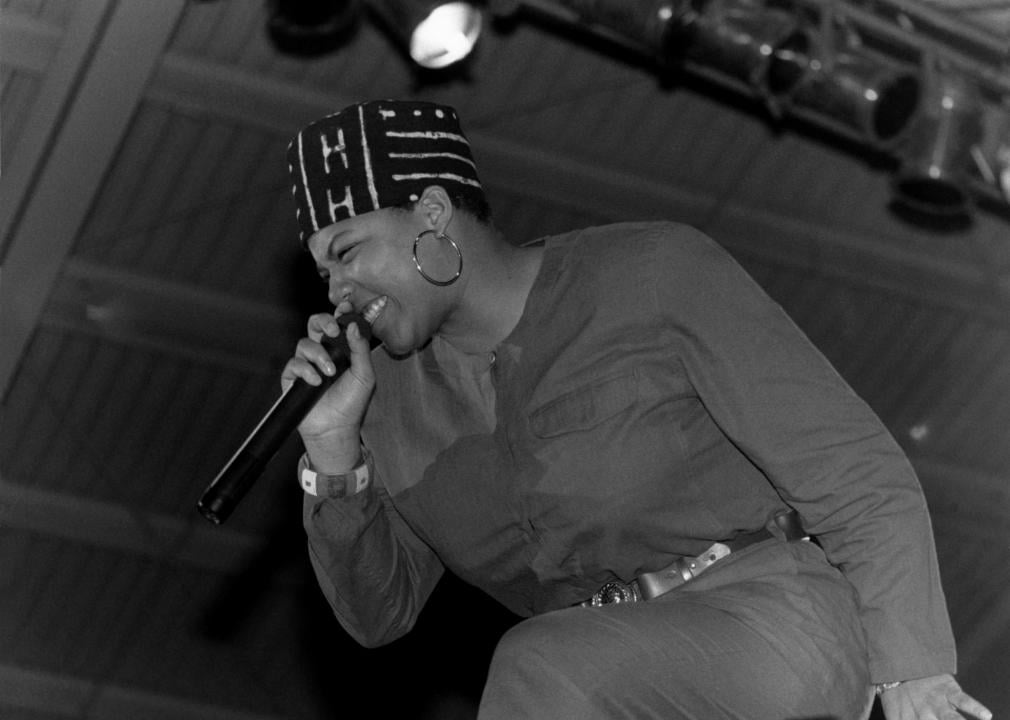
Raymond Boyd // Getty Images
Queen Latifah was among the first women in hip-hop to win a Grammy—she won the same year Salt-N-Pepa won its first Grammy. Her powerful lyrics dove into topics like women’s rights and urban struggles, and Latifah seamlessly navigated between rap and R&B. In 2006, she became the first rapper to earn a star on the Hollywood Walk of Fame.
Selena

Vinnie Zuffante // Getty Images
Selena was a top-selling artist, in-demand actress, and one of Tejano’s most famous celebrities ever. She secured record-breaking endorsement deals, won scores of awards, and was a noted philanthropist. Selena was murdered in 1995; in 1997, her story was told in a biographical movie starring Jennifer Lopez in a breakout role.
Michele Anthony
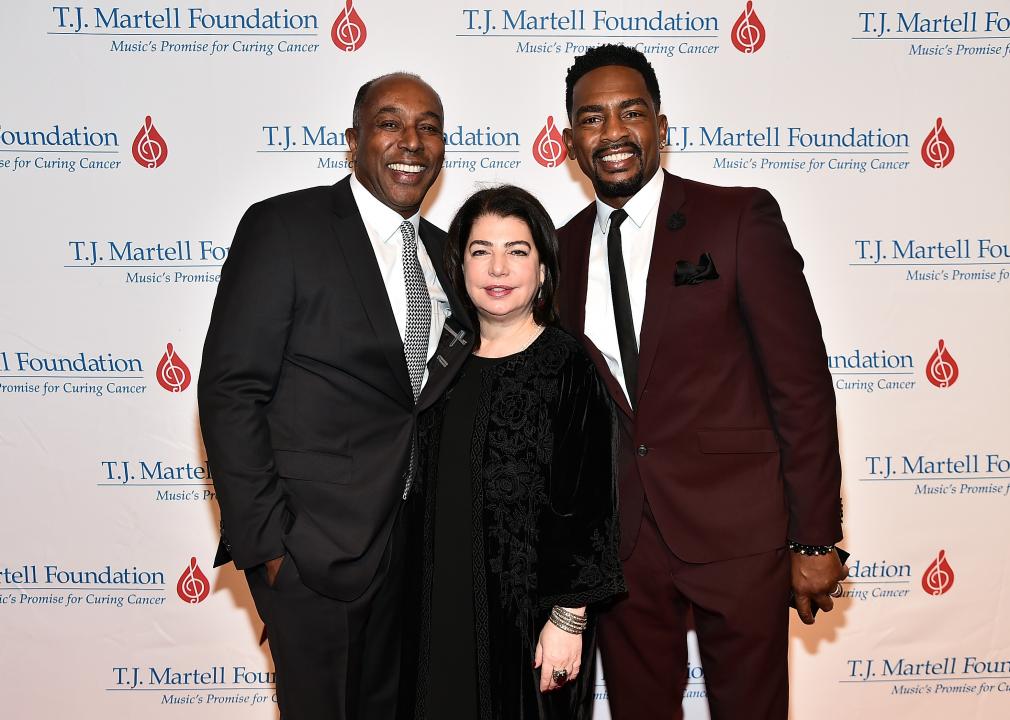
Theo Wargo // Getty Images
Michele Anthony was one of the leading female executives who openly called out the Grammys for being “out of touch.” The Recording Academy’s board of trustees was criticized for a lack of inclusion and transparency, and in a letter, the leaders urged for new leadership on the board. Anthony is the executive vice president of Universal Music Group, and previously founded a firm that managed Pearl Jam, Ozzy Osbourne, and Prince.
Björk

Santiago Felipe // Getty Images
Originating from Iceland, Björk broke into the American mainstream with an uncanny ability to make experimental music resonate with pop audiences. In 2000, Björk won a Best Actress award at Cannes for her appearance in “Dancing in the Dark,” further solidifying the fact that female pop stars could excel in Hollywood. Björk’s musical style is ever-evolving, disavowing popular praise for artistic freedom.
Mariah Carey
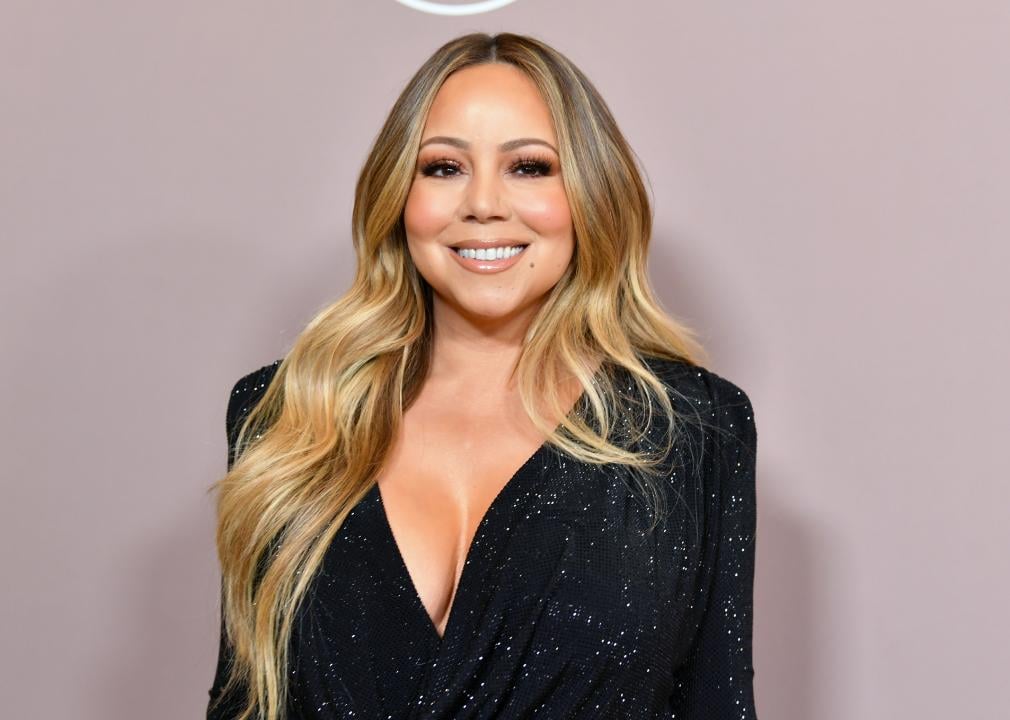
Amy Sussman // Getty Images
Mariah Carey was the youngest musician to receive nominations in each of the big four Grammy categories—Record, Album, and Song of the Year, and Best New Artist. With her amazing voice, Carey is the first artist to reach #1 on the Billboard Hot 100 in four different decades. She’s also the first artist to have her first five singles reach #1 on the Billboard charts.
Sophia Chang
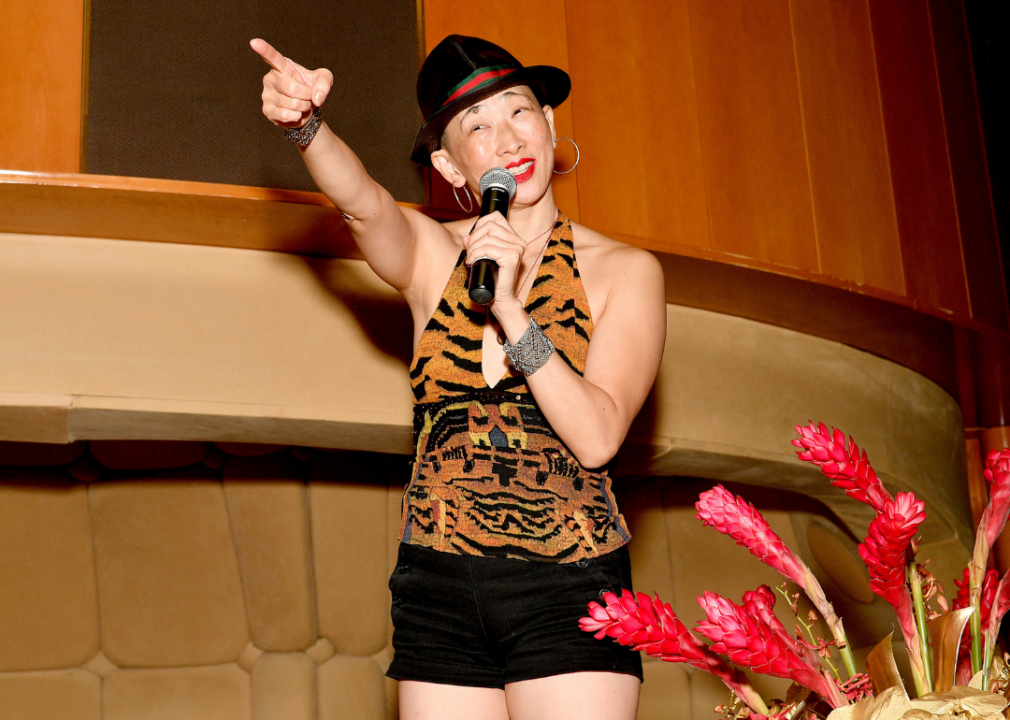
Dia Dipasupil //Getty Images for Audible
Sophia Chang is known as the “baddest b*tch in the room” and is co-signed by some of hip-hop’s biggest acts. Throughout her career, Chang has managed members of the Wu-Tang Clan—a group that redefined the power of hip-hop collectives—and been an outspoken proponent of diversity and inclusivity. Chang’s memoir details her barrier-breaking career.
Lauryn Hill
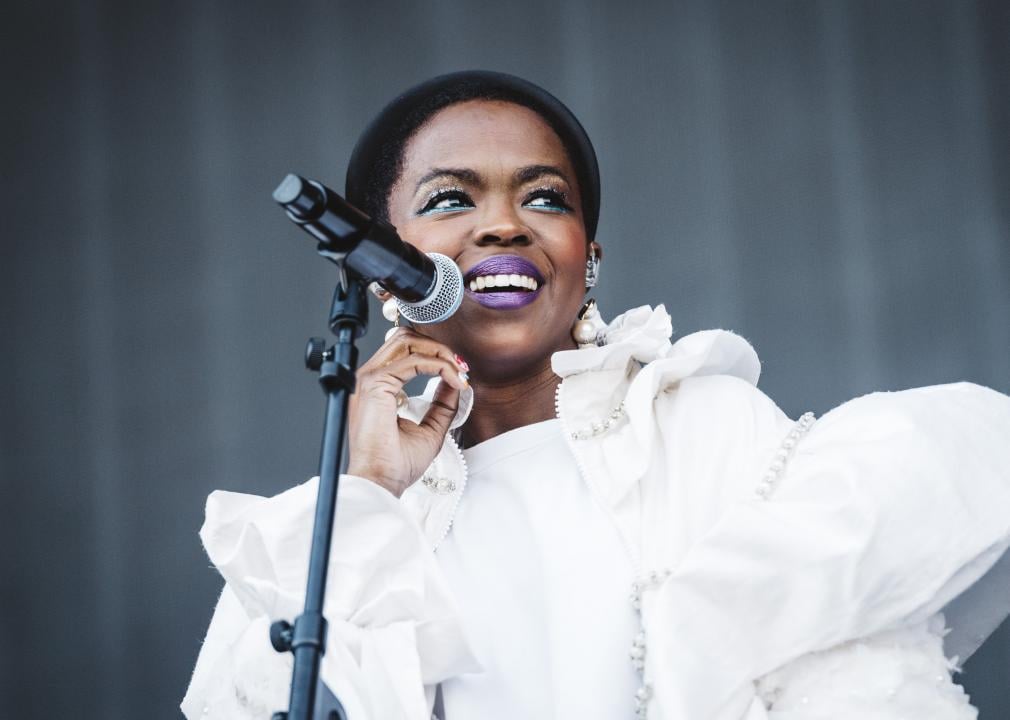
Mariano Regidor // Getty Images
Lauryn Hill was the first woman to win five Grammys at one awards ceremony for her standout album “The Miseducation of Lauryn Hill.” Throughout her career, Hill has remained confident and inspirational while battling against unfair portrayals that have ruined the reputations of other artists of color. On NPR’s list of 150 albums made by women, Hill came in at #2.
Missy Elliott
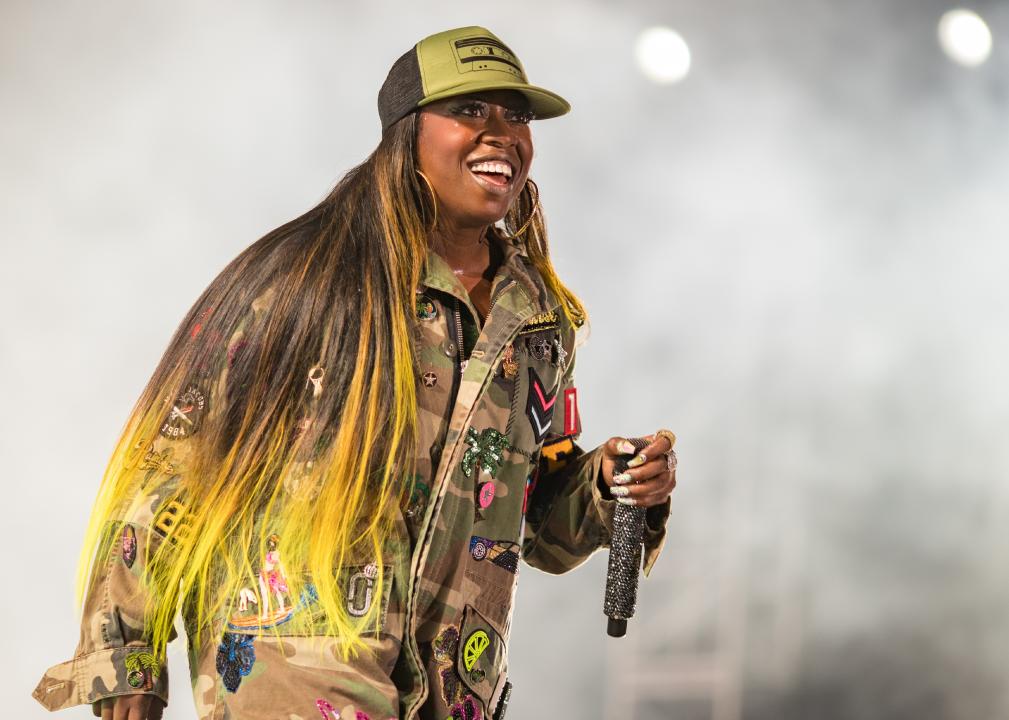
Christopher Polk // Getty Images
Missy Elliott began her career as an R&B singer, became a producer, then broke out as a solo star in the late 1990s. Not bound by one title, she became the top-selling female rapper of all time. In addition, Elliott has been a tireless advocate for sex and body positivity.
Fiona Apple
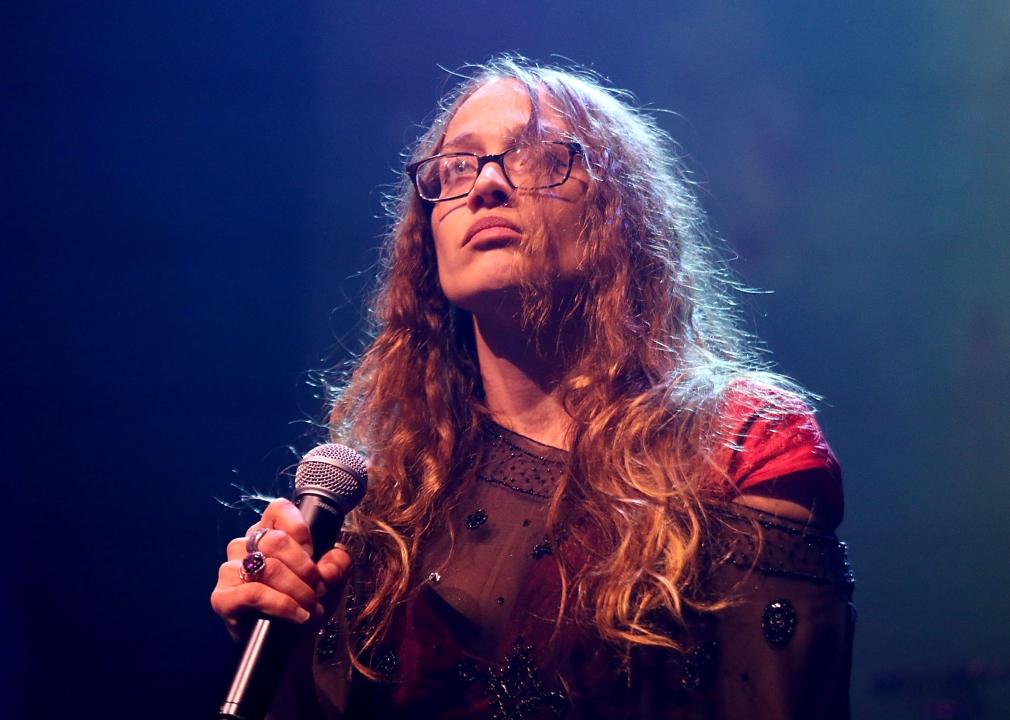
Gary Miller // Getty Images
Fiona Apple, who released what many critics consider the best album of 2020, burst onto the music scene in the late 1990s as an anti-pop star, and famously criticized materialism and cited Maya Angelou as an inspiration in a speech at the MTV Video Music Awards. Apple doesn’t rely on yearly releases or big-budget music videos, just raw honesty that wins her an ever-increasing legion of fans.
Spice Girls
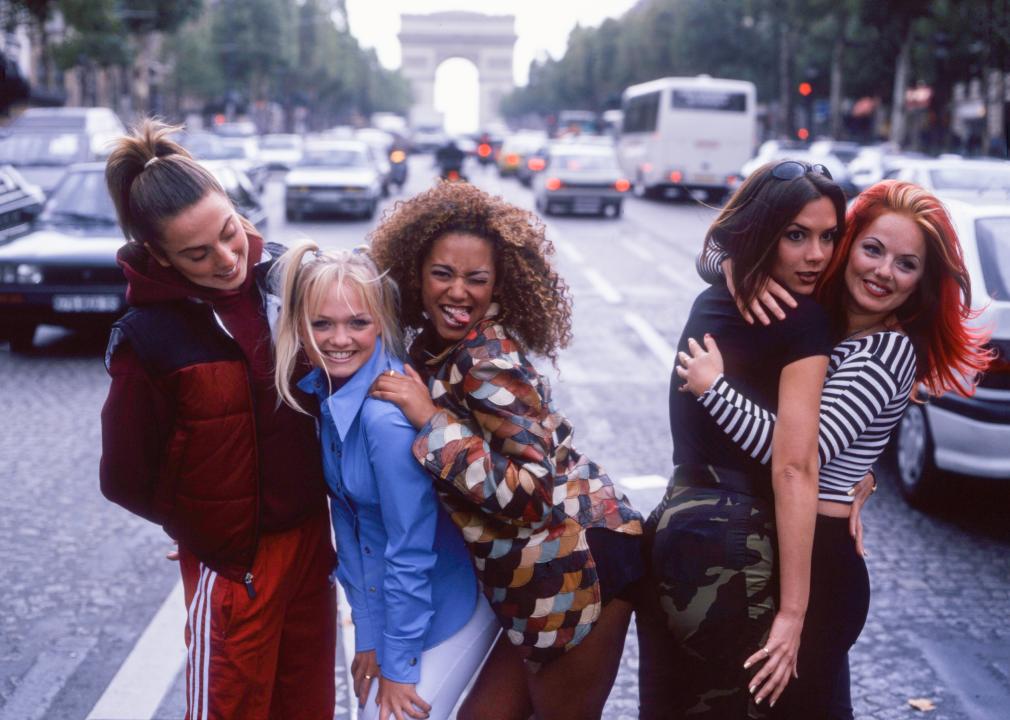
Tim Roney // Getty Images
Beginning in 1996, the Spice Girls made sure the world knew the meaning of “girl power.” Boosted by the upbeat hit single “Wannabe,” the Spice Girls invaded America and took over radio, TV, and movies. Some have called today’s young female leaders the “Spice Girls generation.”
Jennifer Lopez
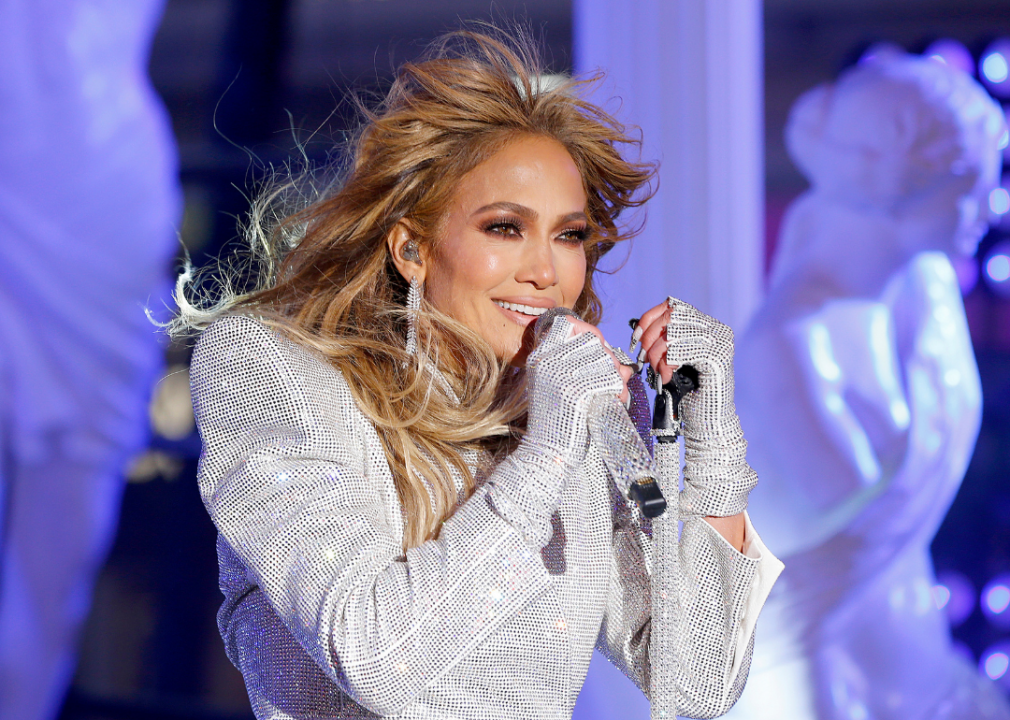
Gary Hershorn-Pool // Getty Images
Jennifer Lopez’s breakthrough came portraying another music icon, Selena, and one day another emerging star will likely portray “JLo” on the big screen. In her worthy-of-a-movie career, Lopez conquered dance, pop music, movies, and even broke into the world of sports as an owner of the Miami Dolphins.
Janelle Monáe
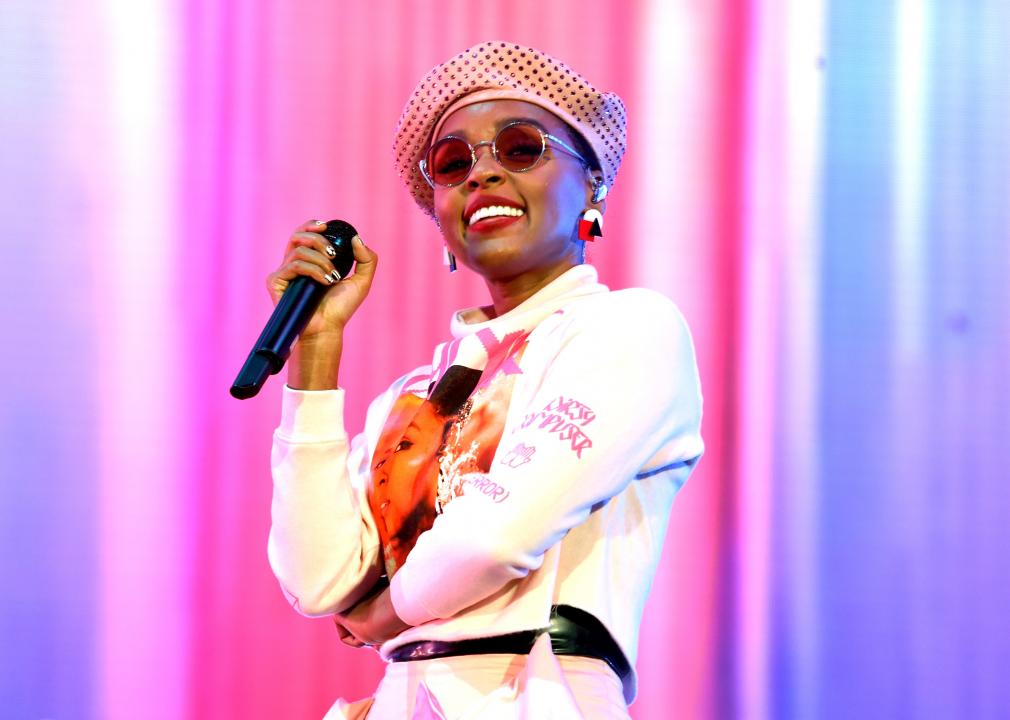
Kevin Winter // Getty Images
Janelle Monáe has achieved fame and success on her terms. NPR called her “a veritable influencer of all things cool,” noting her as the heir to Prince’s lineage. Monáe has also prioritized uplifting young people of color.
Shania Twain

Al Bello // Getty Images
When country music made a big crossover into pop music in the 1990s, Shania Twain led the charge with hits like “That Don't Impress Me Much” and “Man! I Feel Like a Woman!” Twain’s success set the stage for future acts like Taylor Swift, and her videos flipped the usual script of male rock stars backed by female dancers, centering on powerful female voices in front of male backers.
Lady Gaga
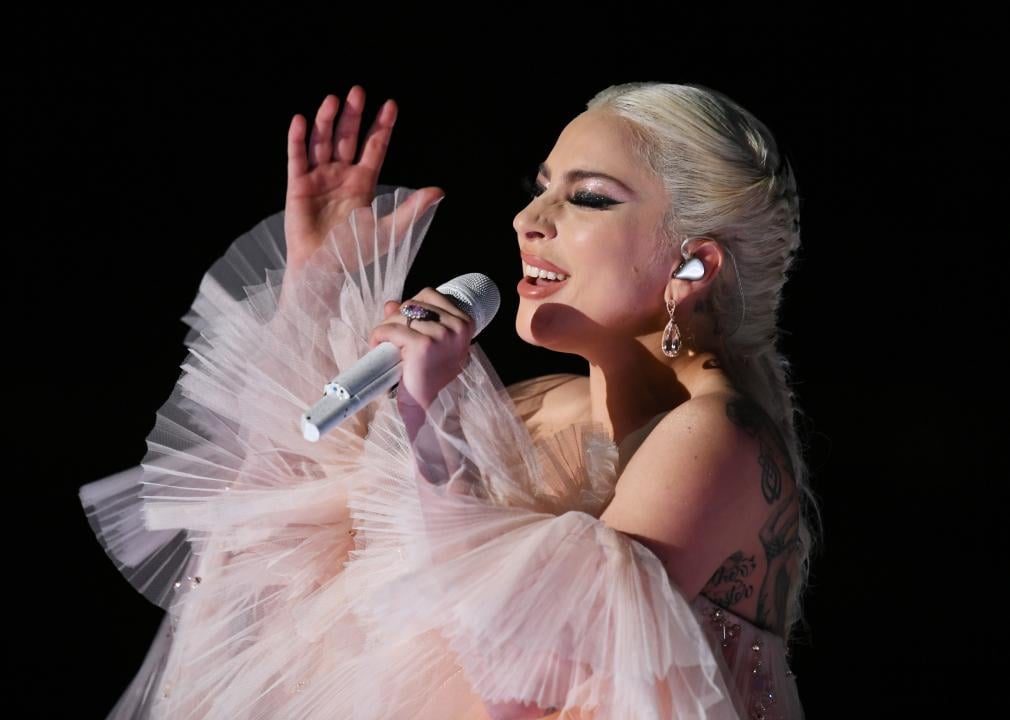
Kevin Winter // Getty Images
In 2008, Lady Gaga redefined pop music with her artistic, dance-ready club anthems. Gaga became arguably the world’s biggest pop star as she continually evolved, and then did a 180 and proved she was equally talented on film. Her performance in “A Star is Born” wowed critics, and she challenged the norm of fashion and “looks” of a movie star—she deliberately chose not to wear makeup in the film.
Ty Stiklorius
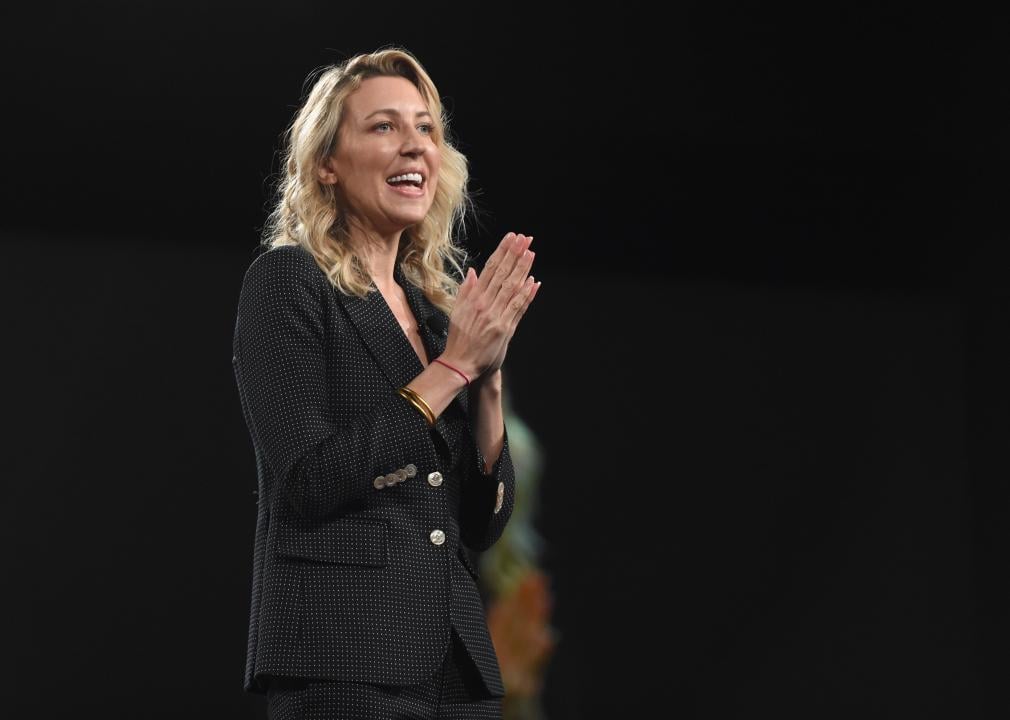
Emma McIntyre // Getty Images
As John Legend’s manager, Ty Stiklorius created a female-backed management firm that is a leader in film and music. Stiklorius is also driving initiatives for quality education and criminal justice reform. She specifically targets change-making artists with ambitious social impact goals.
Taylor Swift

Jamie McCarthy // Getty Images
With an army of Swifties behind her, Taylor Swift is more than just a global pop icon. She’s matured into an outspoken advocate for women’s rights, social justice issues, and voting. Musically, she took a bold stand when her masters were sold, calling out the hypocrisy of artists’ not being able to own their own work, and planned to re-record her early songs to regain control of her narrative.
Adele
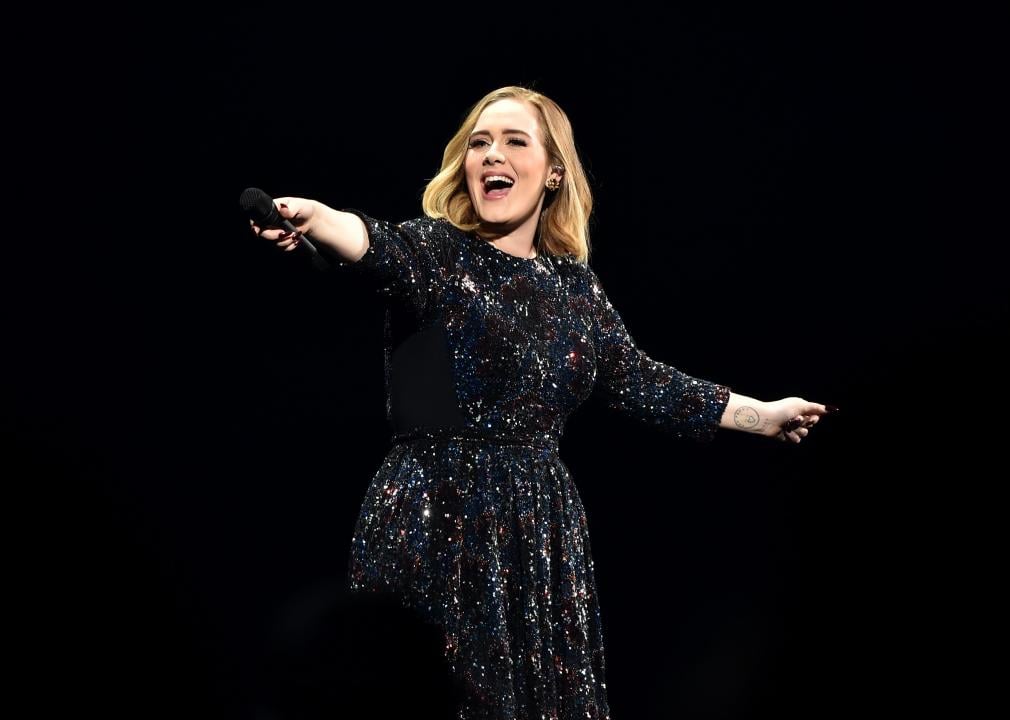
Gareth Cattermole // Getty Images
When Adele dropped her video for “Hello” in 2015, she amassed over 27 million views in one day, a new YouTube record. The song also went on to set first-week download records, and her album “25” was the fastest-selling album in America, moving over 2.4 million units. Adele also became the first woman to have three top 10 singles on Billboard’s Hot 100 chart at the same time.
Lizzo
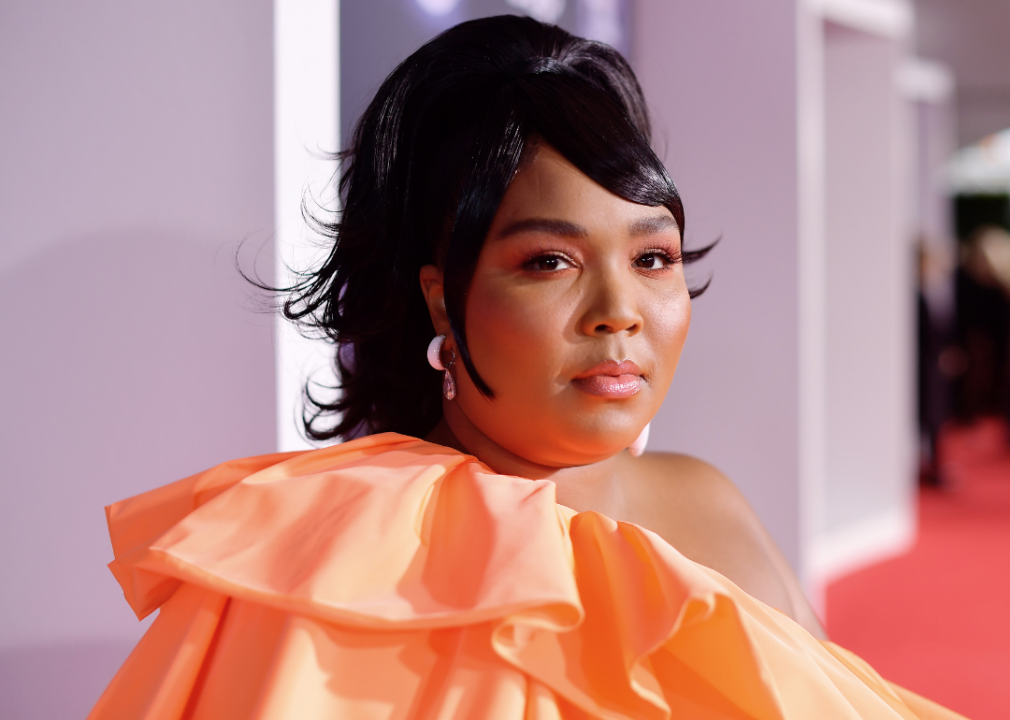
Matt Winkelmeyer // Getty Images for dcp
Lizzo began her career as a flautist and transformed into one of pop music’s most respected figures with a DIY attitude and open honesty. Lizzo was named one of The Advocate’s 2020 Women of the Year for her work in promoting Black and LGBTQ+ artists.
Beyoncé

Larry Busacca/PW/WireImage for Parkwood Entertainment // Getty Images
Beyoncé is more than just one of the most famous people in the world: She’s redefined music success and become an inspiration for women around the globe. Beyoncé’s 2016 album “Lemonade” was her record sixth album to debut atop the Billboard charts. At 33, Beyoncé became the youngest artist to win 20 Grammys.
Desiree Perez
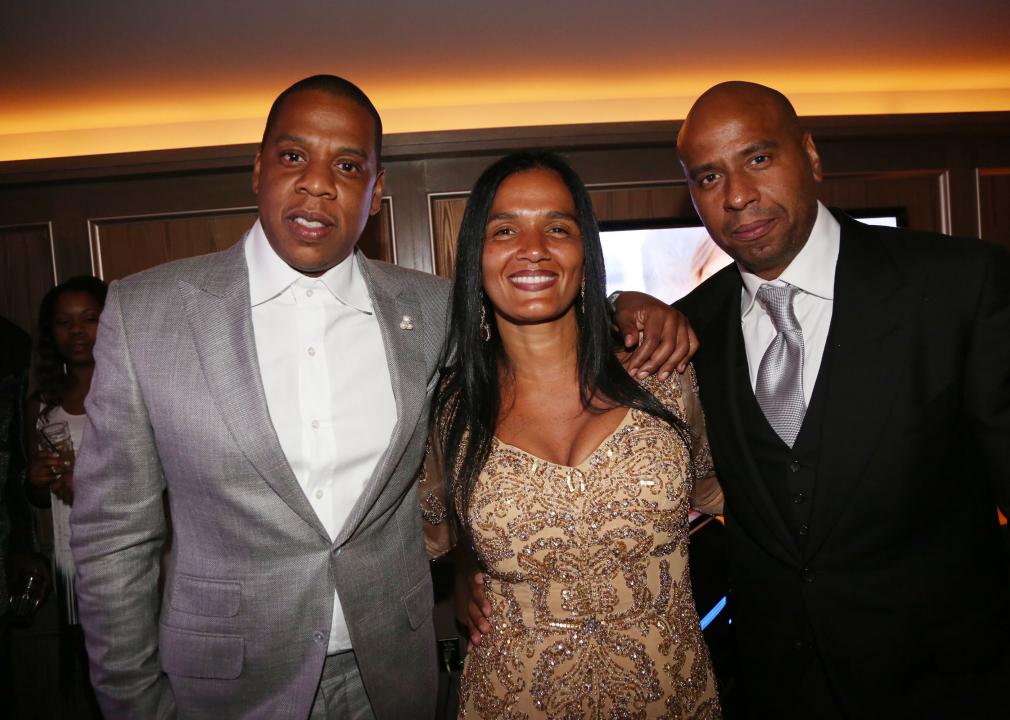
Johnny Nunez // Getty Images
Desiree Perez is one of the driving forces in hip-hop music as one of the founders and CEO of Roc Nation. Perez has been one of Jay-Z’s closest confidantes over the past two decades and has brokered big deals for Beyoncé and Rihanna. In 2019, Pere was named Billboard’s Executive of the Year.
Jessica Hooper

Joe Mabel // Wikimedia Commons
In 2015, Jessica Hooper published “The First Collection of Criticism by a Living Female Rock Critic,” which provided a unique look inside of the most powerful minds in music journalism. Hooper has covered music over many decades for publications like The Village Voice, MTV, and Pitchfork. Her writing paved the way for other seminal music books like Lizzie Goodman’s “Meet Me in the Bathroom.”
Lorde
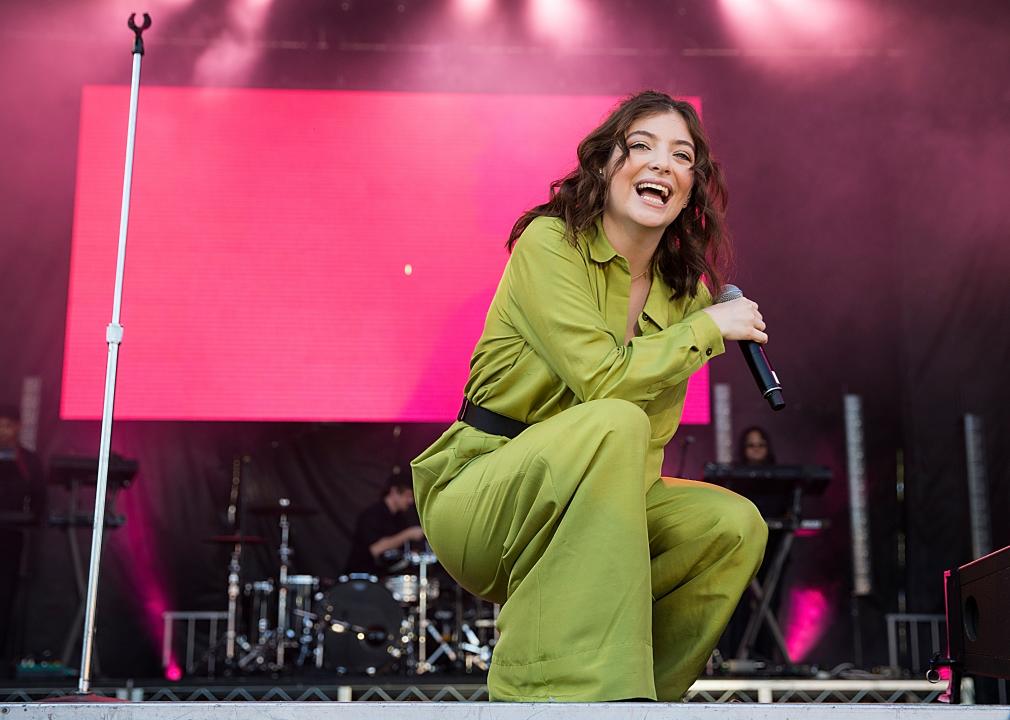
Andrew Chin // Getty Images
Lorde’s 2014 album “Pure Heroine” became the first debut by a female artist in six years to top 1 million in U.S. sales. Lorde’s mature style and songwriting changed perceptions of teen artists, further proving pop music has evolved way beyond bubblegum.
The Chicks
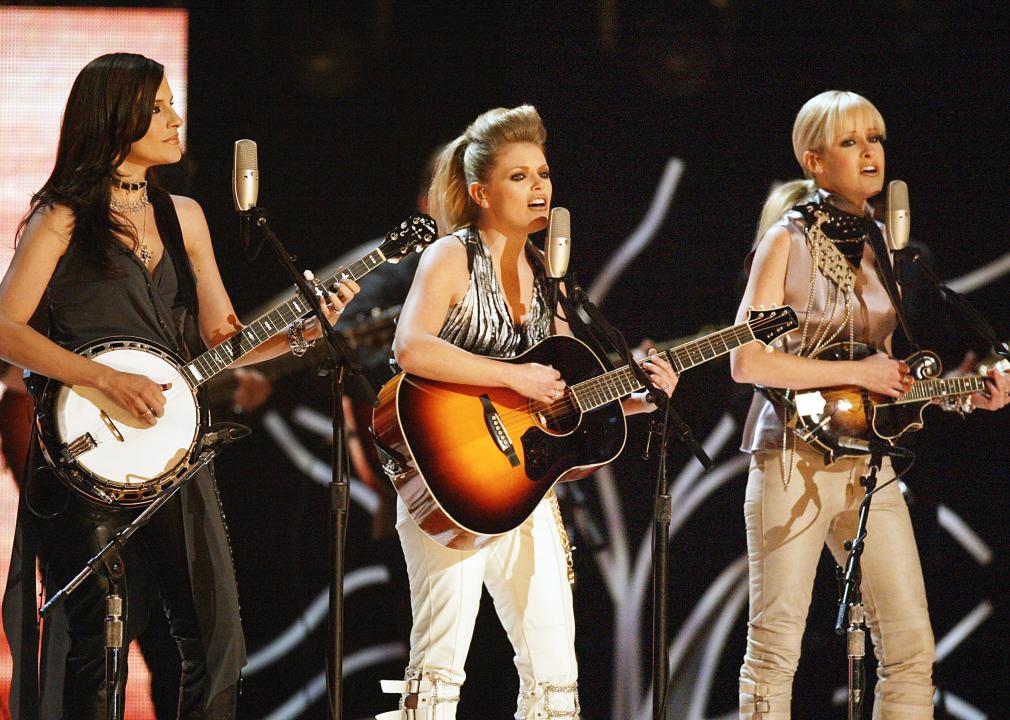
Frank Micelotta // Getty Images
In the early 2000s, this band took a bold stand at the risk of alienating a chunk of its fan base by criticizing President George W. Bush and American military actions in the Middle East. The Chicks continue to show they’re not afraid to wade into political waters; in 2020, the band removed the word “Dixie” from its name because of connotations to slavery.
Michelle An
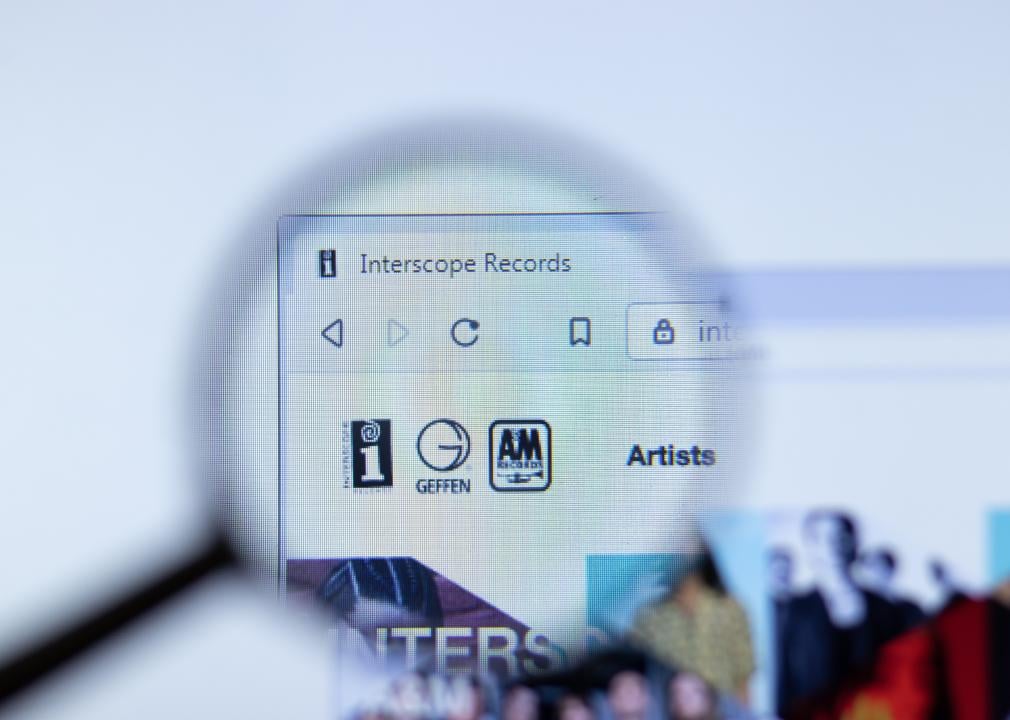
Postmodern Studio // Shutterstock
Michelle An is the creative force behind the visuals for acts like Billie Eilish, Lana Del Rey, and Selena Gomez. Now the executive vice president, head of visual creative at Interscope Geffen A&M, An began her career in advertising. An has twice been named to Billboard’s Women In Music list, and her artists’ music videos regularly produce over 1 billion monthly views online.
Cindy Charles

Ink Drop // Shutterstock
As head of music licensing and label relations at Twitch, Cindy Charles works with artists and producers to create music opportunities on the popular gaming platform. In 2019, Marshmello’s Fortnite concert was one of the biggest music events of the year. Charles is also the co-founder of Women in Digital Media.
Annie Lee
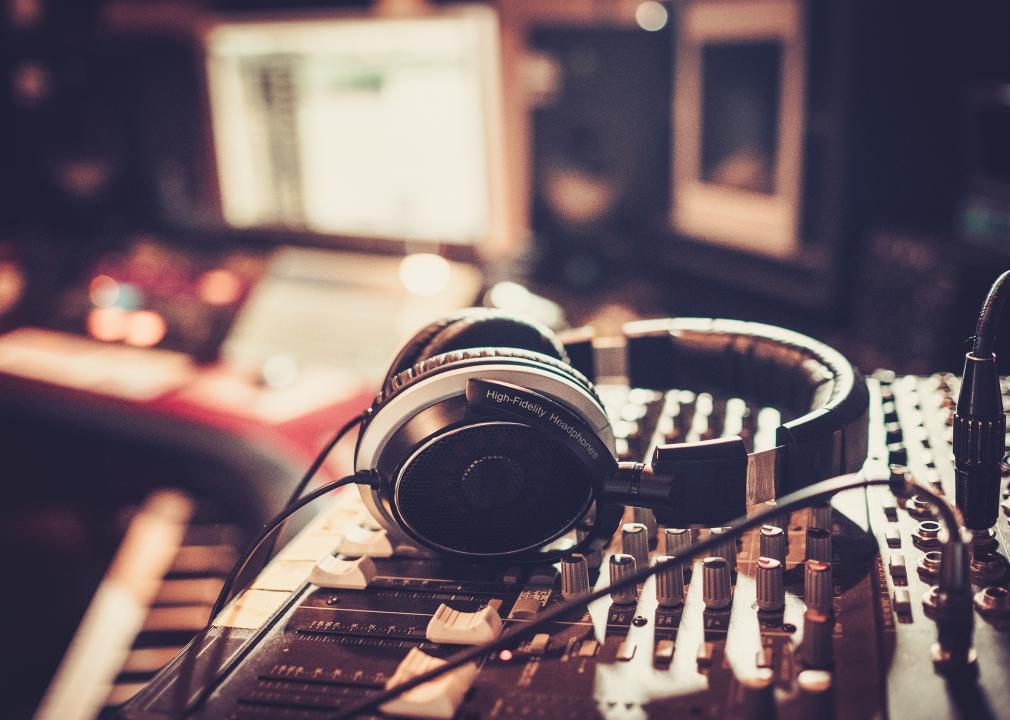
Nejron Photo // Shutterstock
In March 2019, Annie Lee was named the chief financial officer of Interscope Geffen A&M. Lee, who joined Interscope in 2006, is the daughter of Taiwanese immigrants, and has been a leading advocate for diversity and inclusion at her company. She also is a mentor for emerging music industry executives.
Blackpink
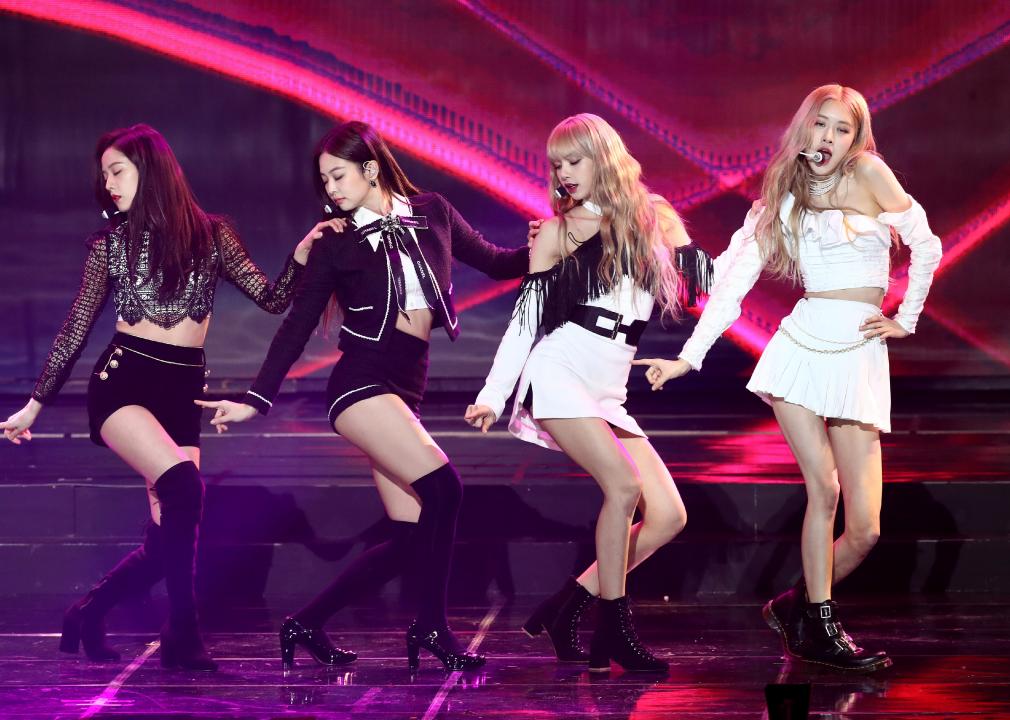
Chung Sung-Jun // Getty Images
Following in the footsteps of Girls Generation and Wonder Girls, Blackpink has achieved worldwide success, unlike any female K-pop act before it. The group’s single for “How You Like That” set YouTube records, including “Most viewed YouTube video in 24 hours.” Blackpink was also the first female Korean group to be certified by the Recording Industry Association of America.


